Barcelona, Spain
Visiting Barcelona: 5 essential Gaudí works to see.
It's impossible to plan a trip to Barcelona without seeing the name of Antoni Gaudí! For a day, we walked the streets of the Catalan capital to discover the must-see monuments of the Spanish architect.
Here is our exhaustive list of Gaudí's works to see on a trip to Barcelona.
Gaudi's works in Barcelona
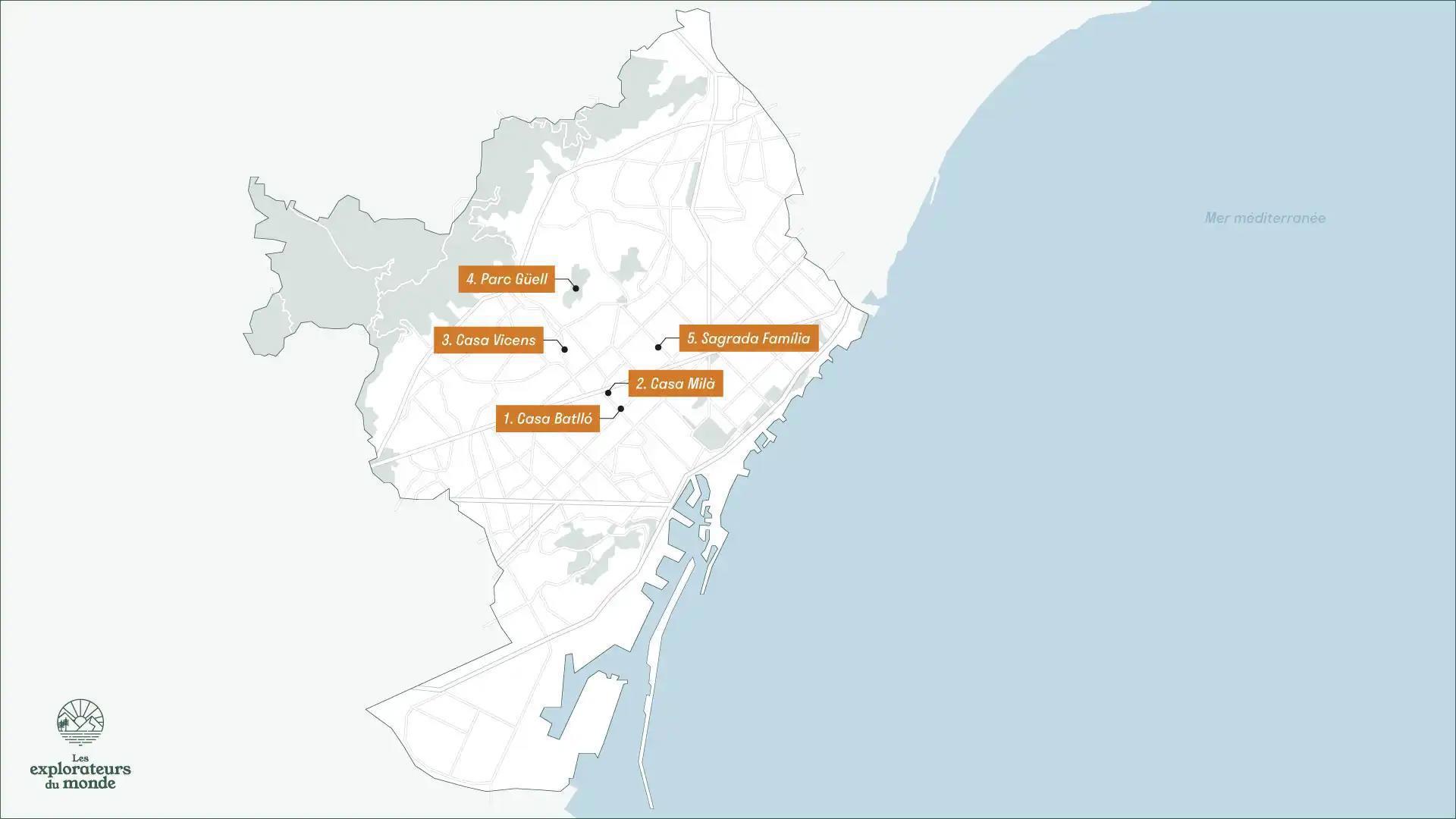
1 • Visit Casa Batlló
The Casa Batlló is one of the major works of the architect Antoni Gaudí. Commissioned by a wealthy industrialist in the early 20th century, Gaudí had carte blanche to develop the plans for this house as long as he remained in the aquatic environment.
The Casa Batlló is a unique house of its kind, Gaudí had this gift of being able to combine aesthetics, creativity and ingenuity. Nothing is left to detail in the architecture of this house, the smallest molding, the smallest handle, the shape of the stained glass windows and the house's ventilation system, everything has its importance!
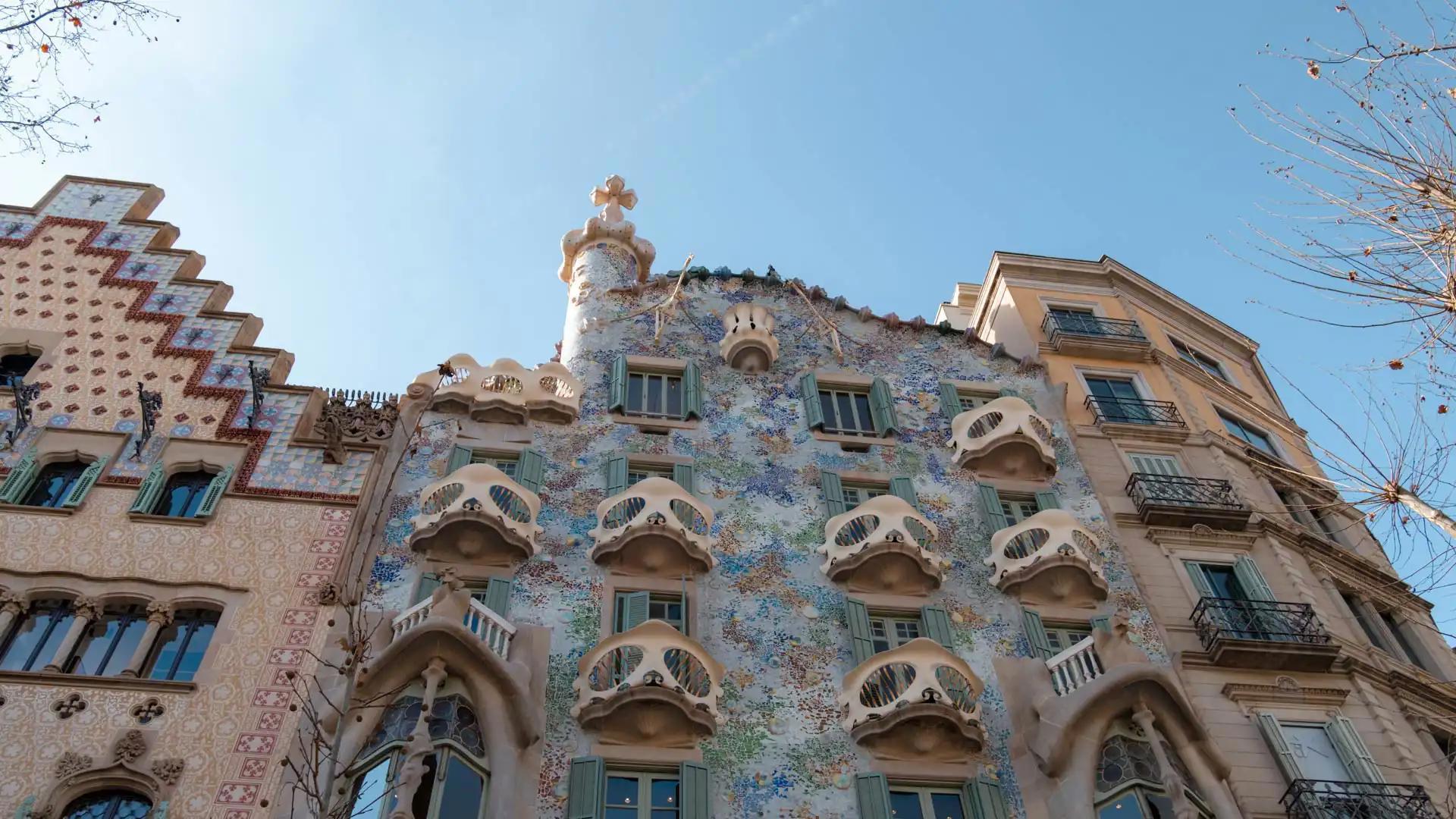
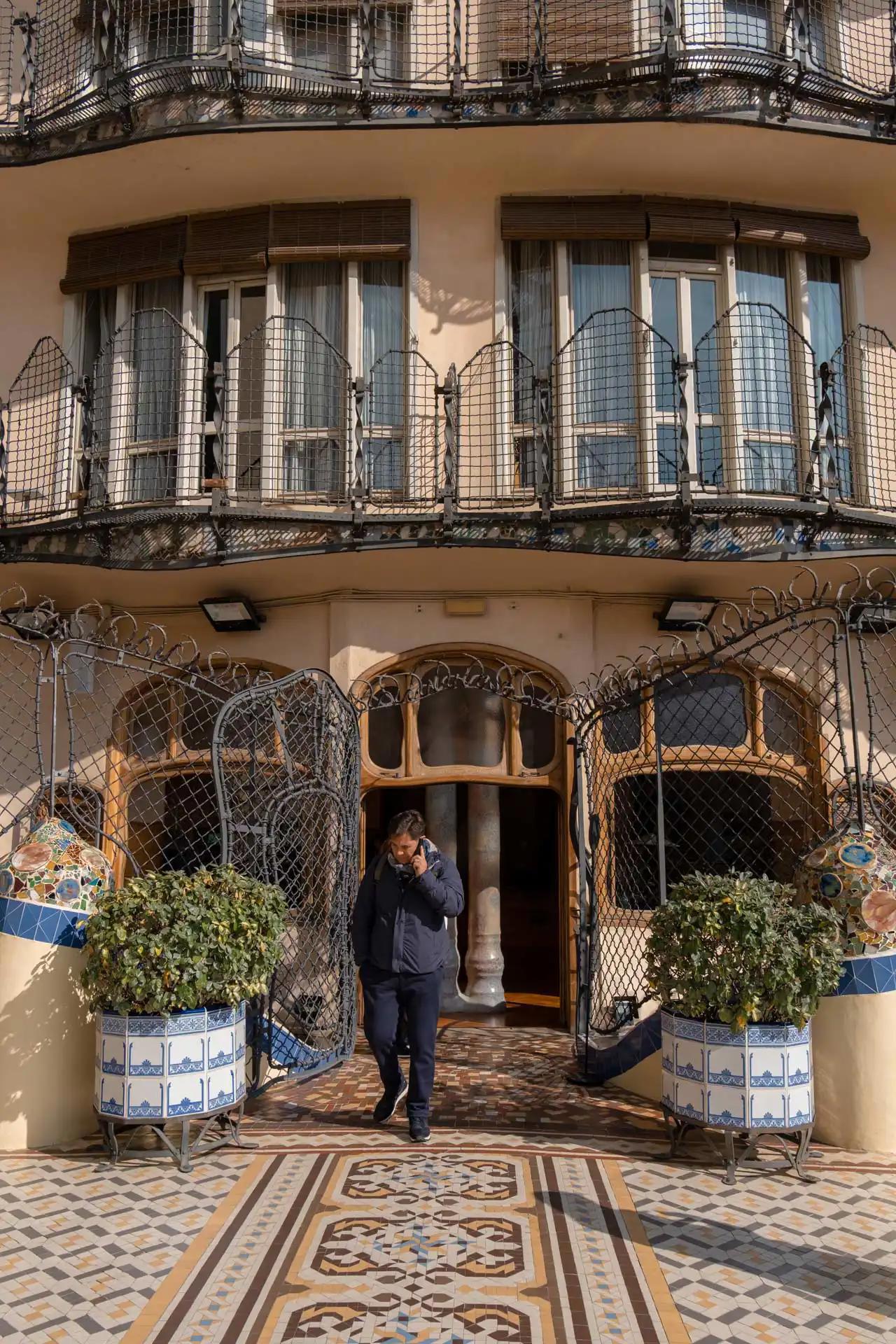
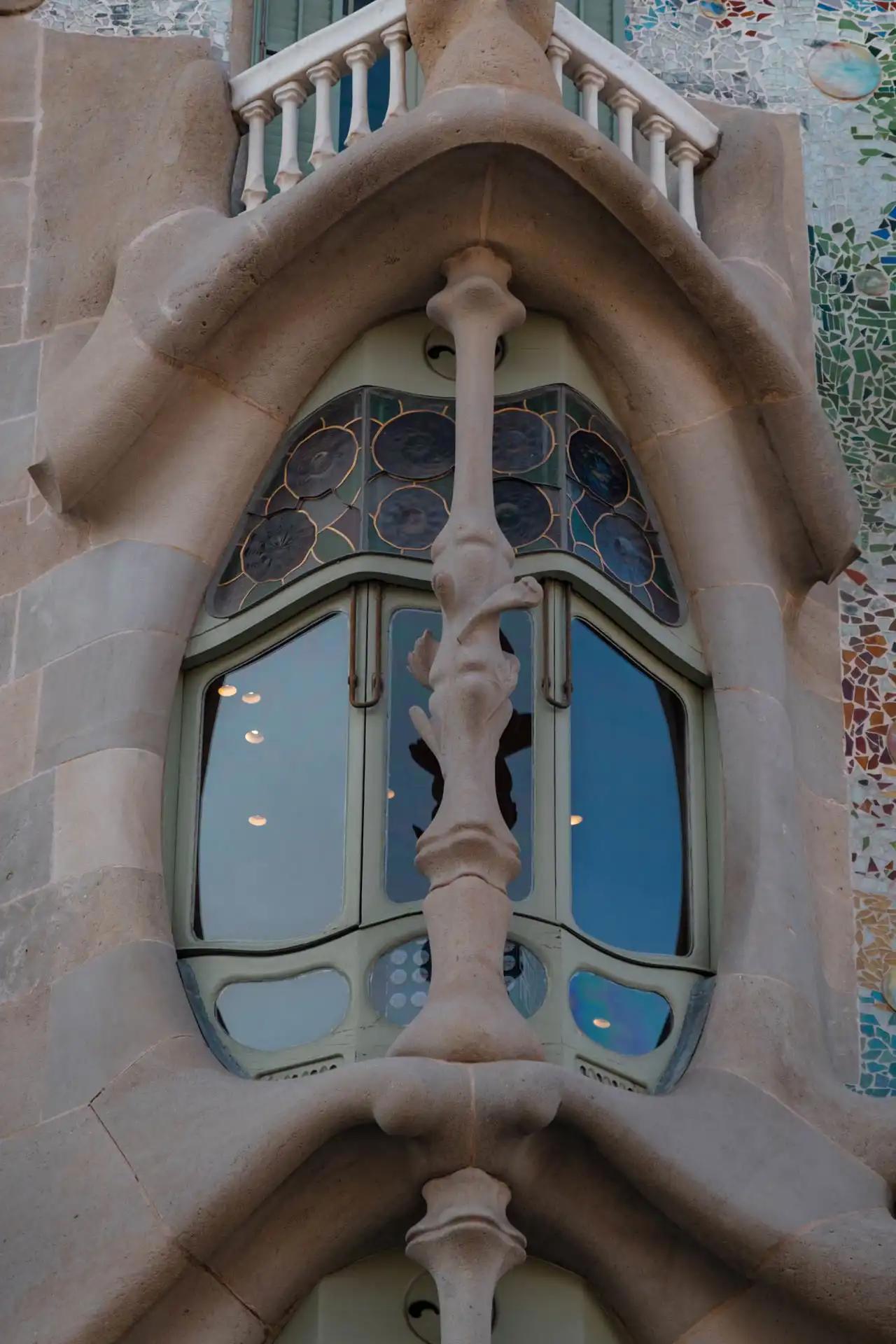
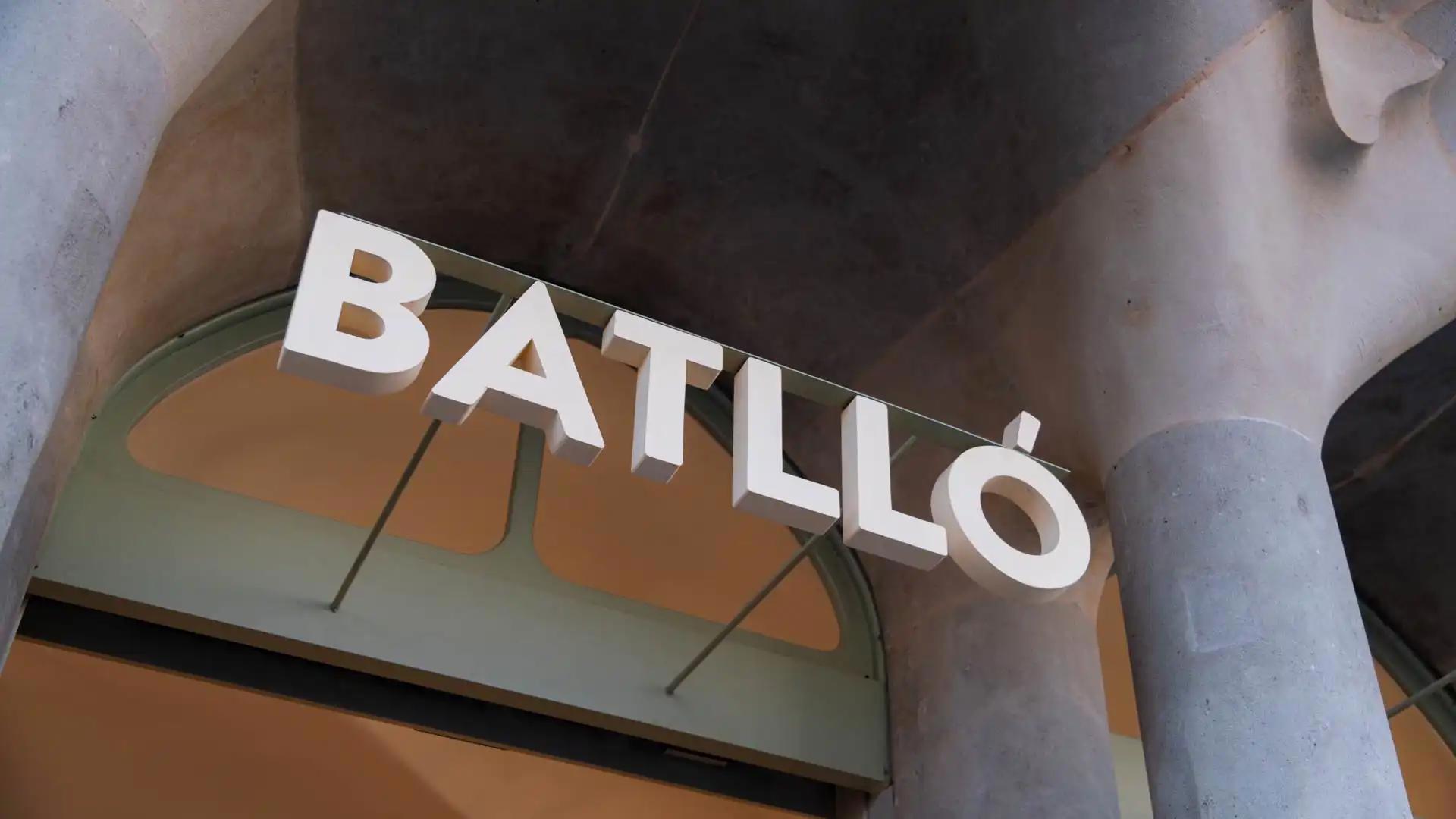
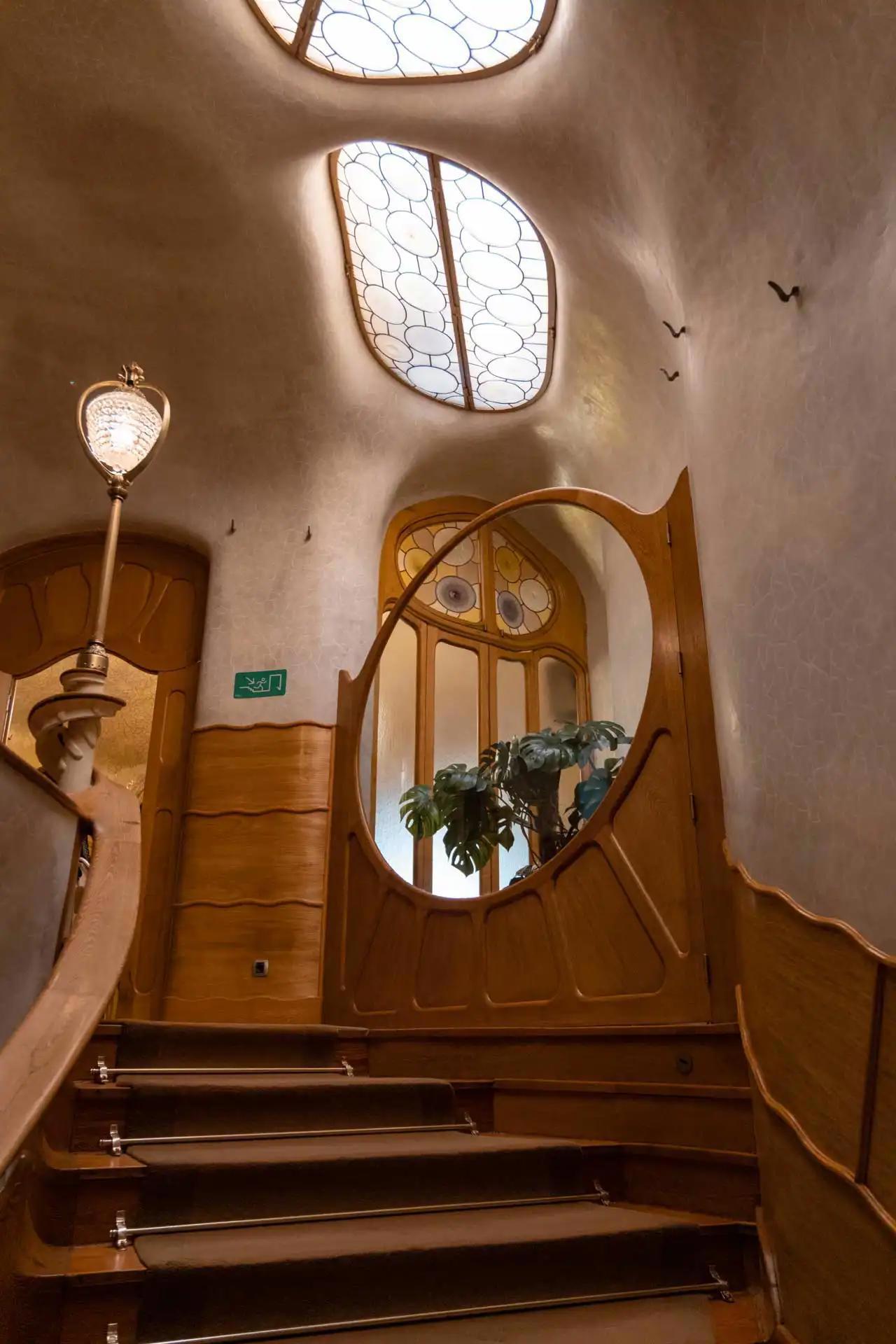
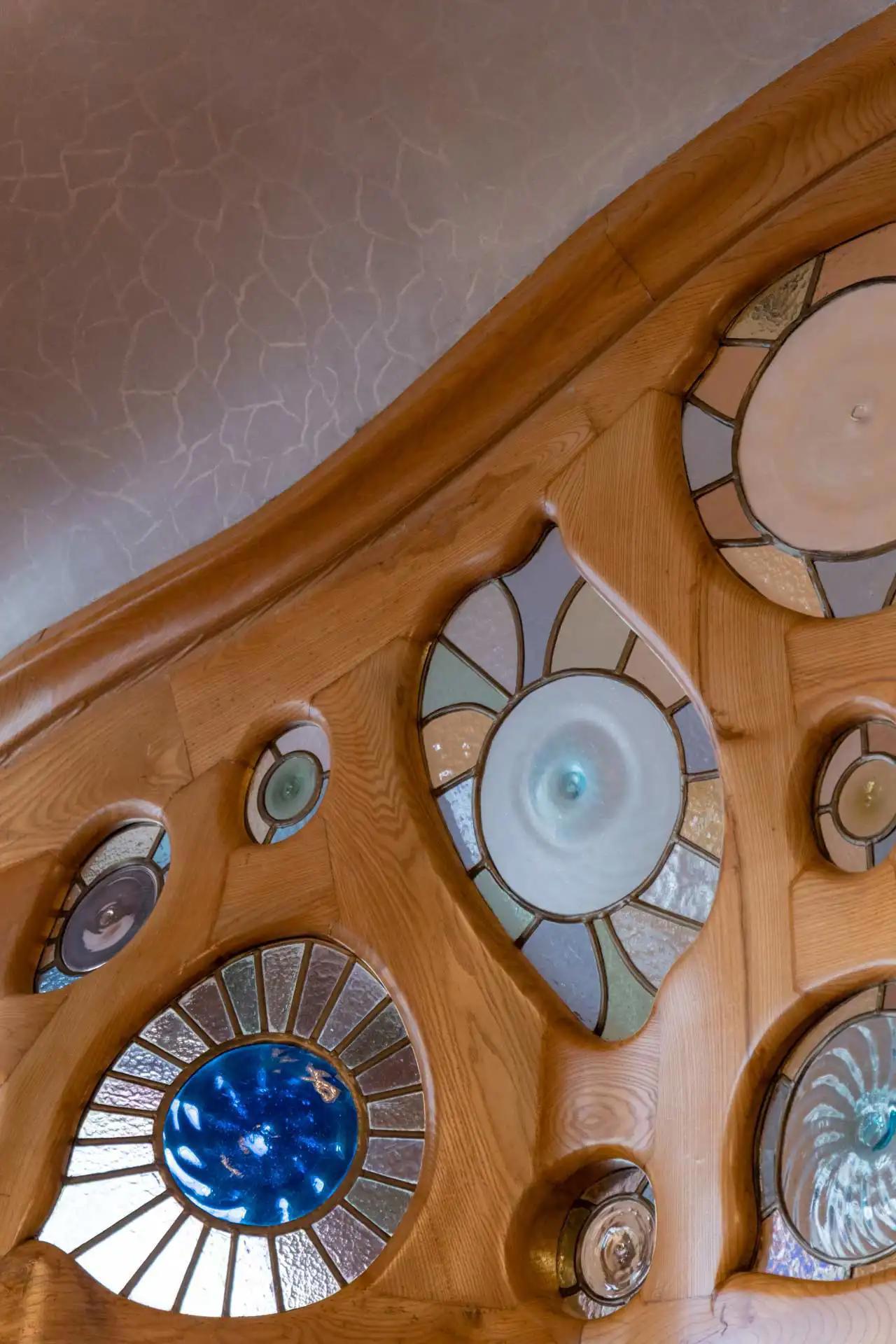
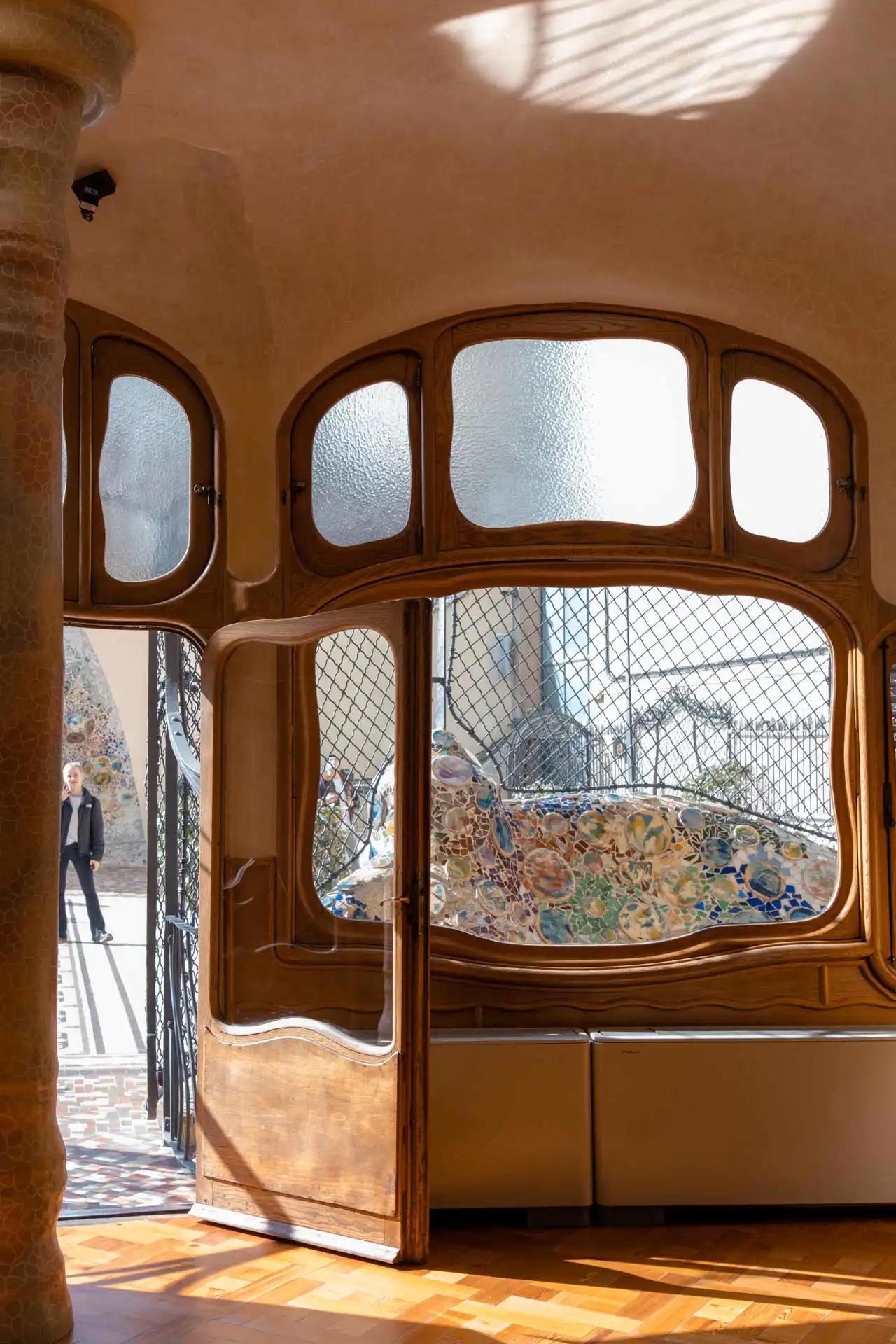
The house was built in 2 years and the Batlló family lived there for about forty years before it passed into the hands of various investors, becoming at the end of the 20th century one of the most important tourist attractions in Barcelona! It has been listed on the UNESCO World Heritage List since 2005 and now welcomes hundreds of thousands of visitors per year.
Visiting Casa Batlló is a must-do in Barcelona, even if, admittedly, the prices for the visits are quite high (you can find all the information in the “info block” below). We were amazed by the genius and originality that this house holds but also a little disappointed by some of the arrangements (the addition of a rooftop bar, too much digitalization, etc.) and were not really able to enjoy the experience because of the large number of people visiting the house (even in the middle of February).
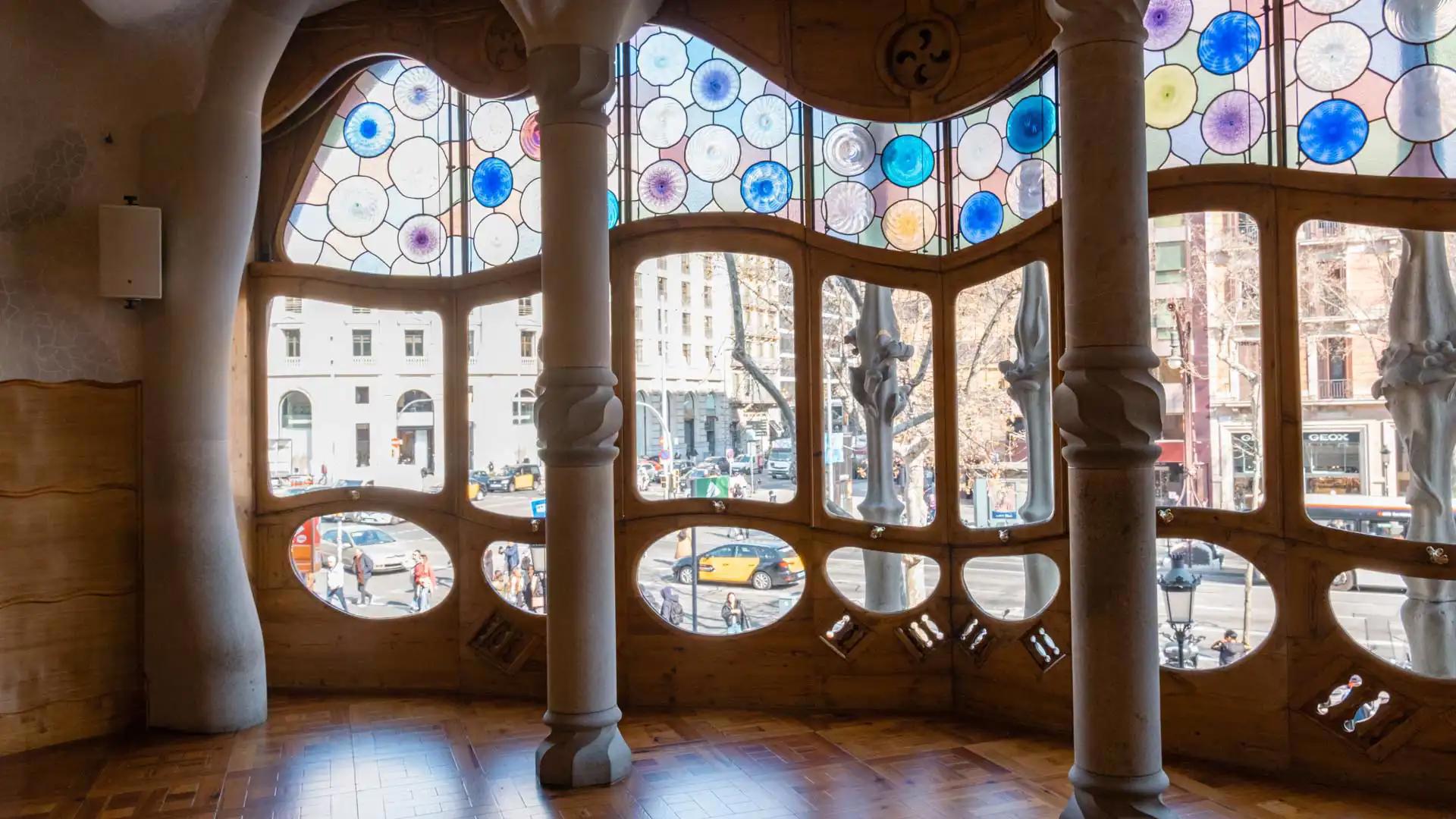
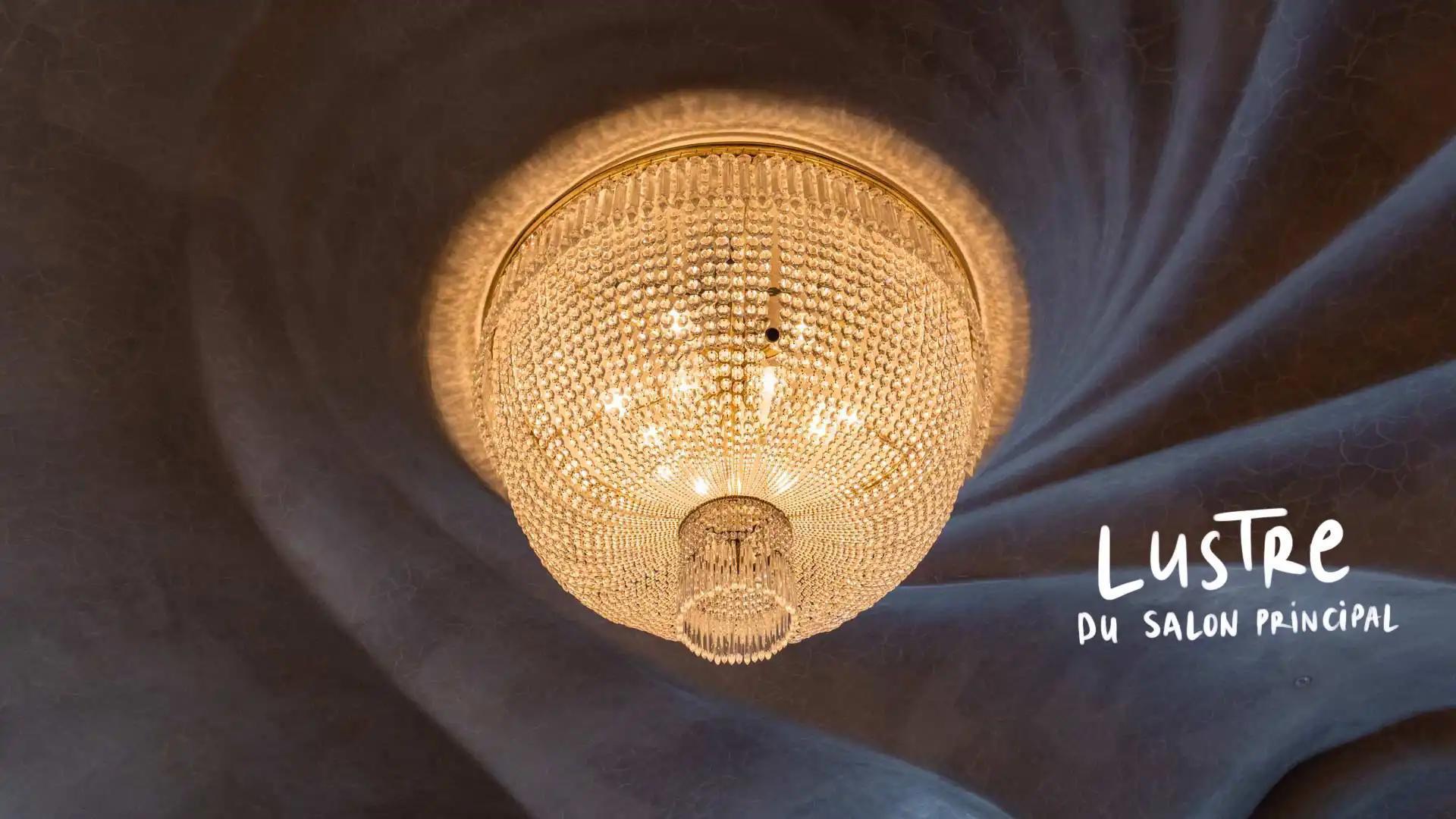
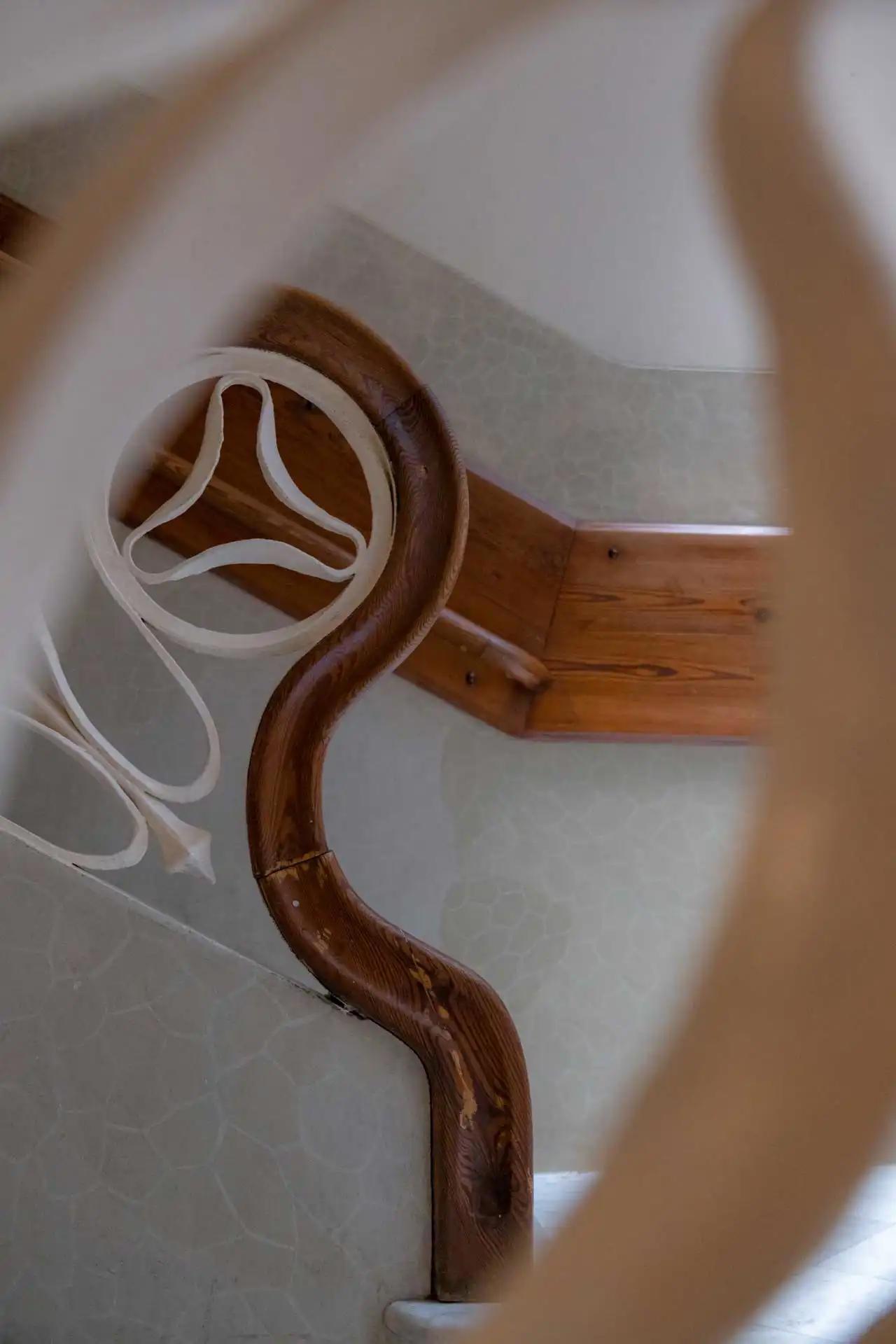
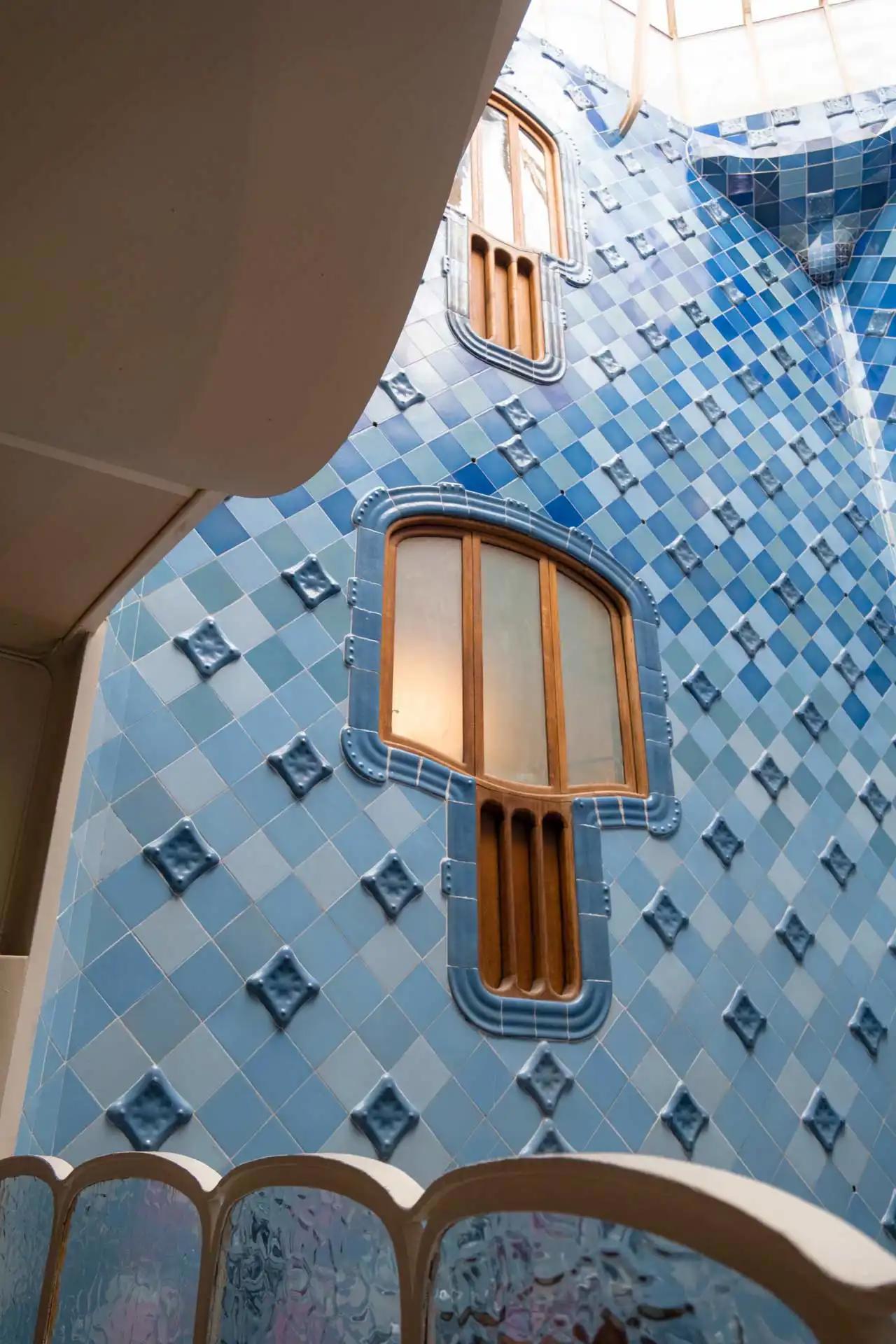
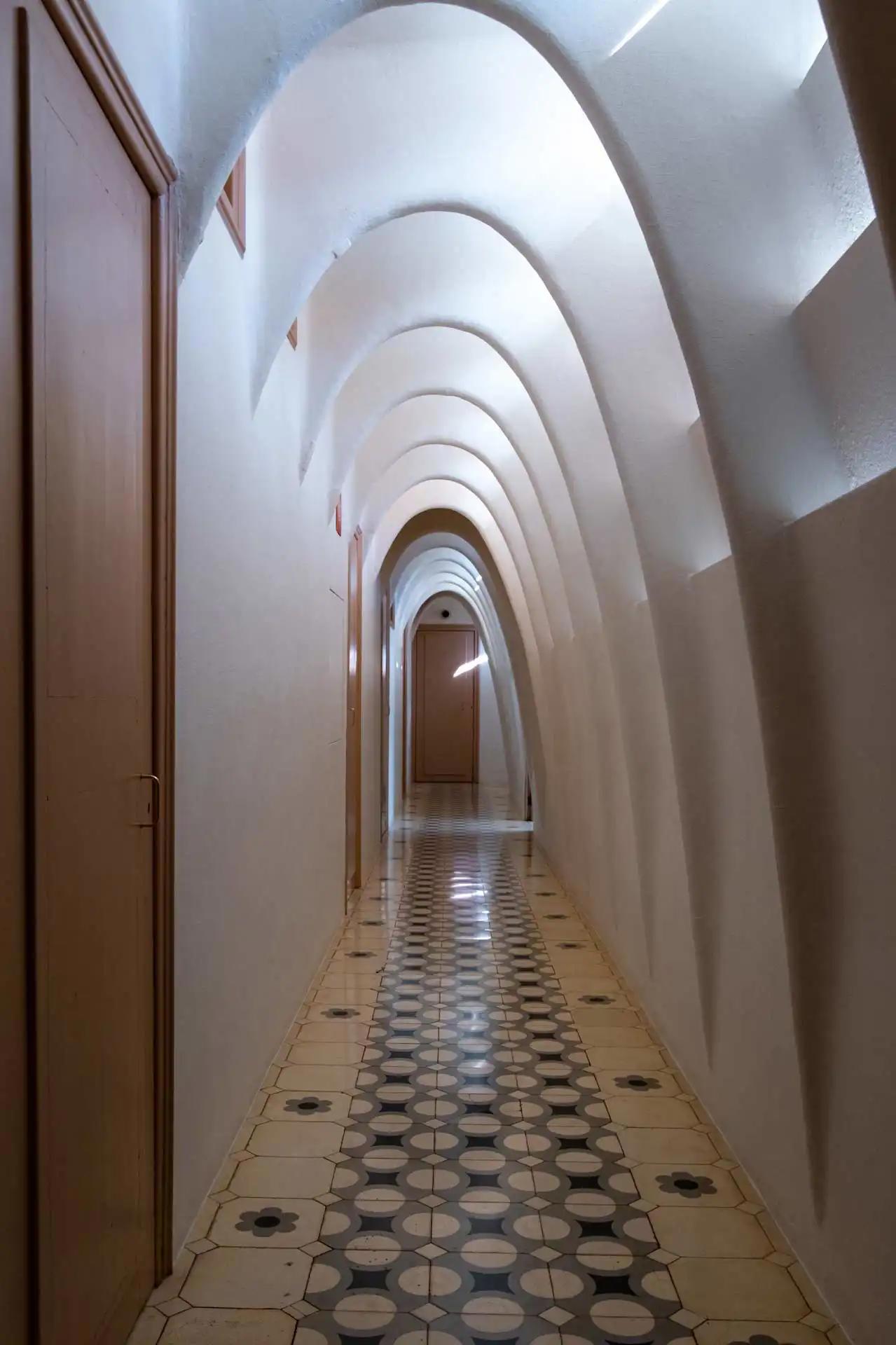
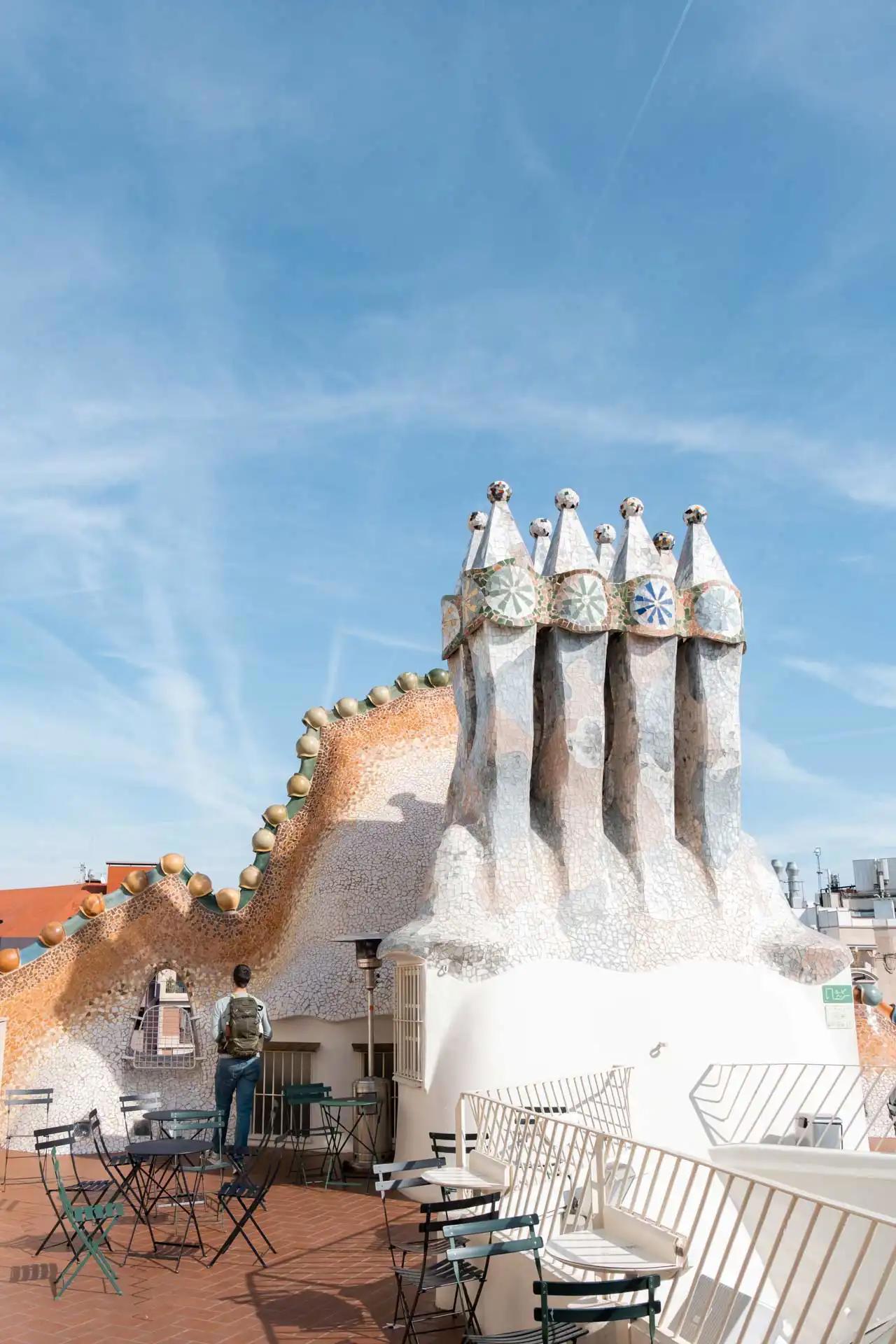
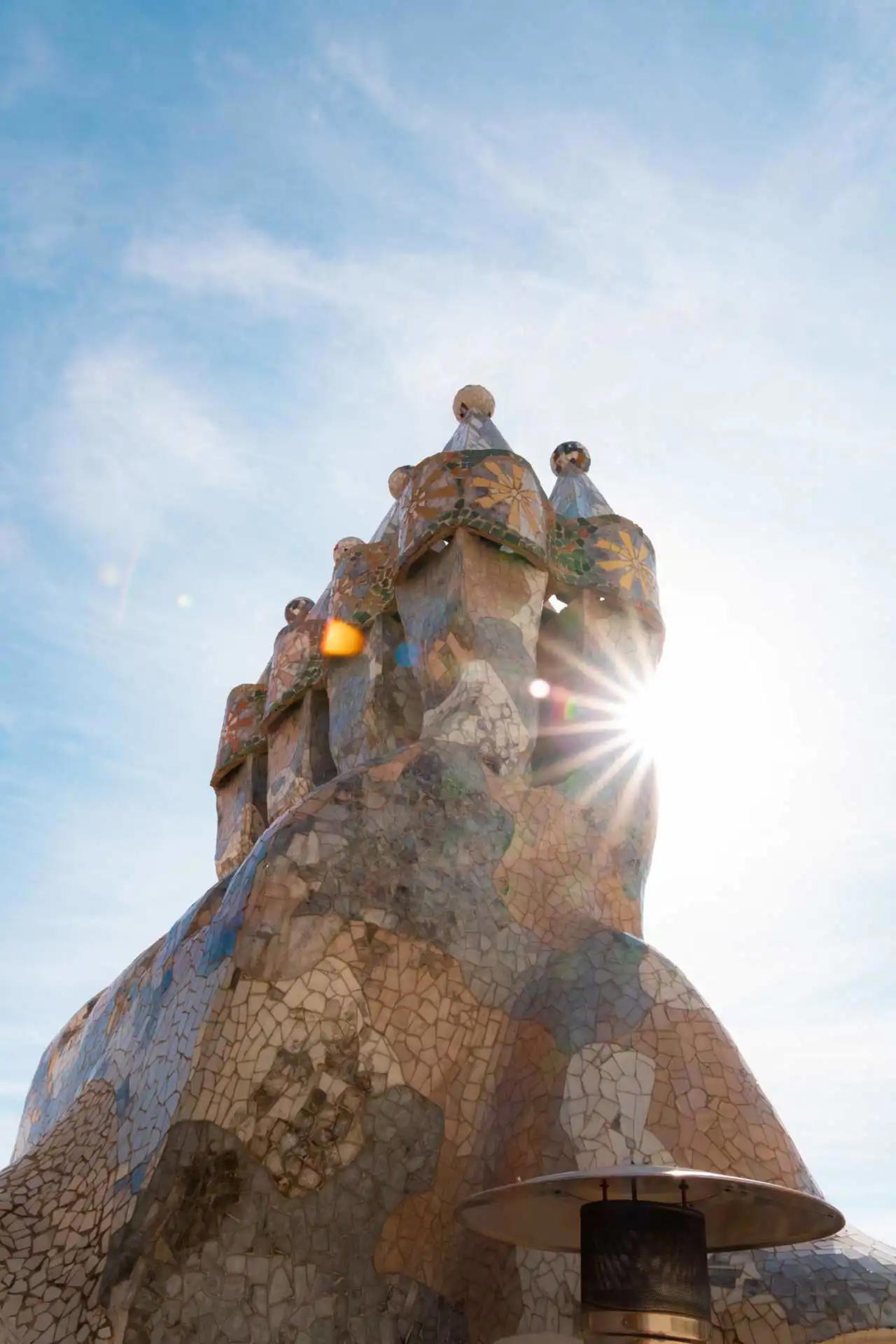
Practical information
🎟️ The price of Casa Batlló entry starts from 29€ per adult. We strongly advise you to purchase your ticket online. Don't hesitate to book in advance, especially during peak season and periods of high attendance.
📍 Address: Passeig de Gràcia, 43 in Barcelona.
🕓 Opening hours: Every day from 9:00 AM to 20:30 PM.
2 • Visit Casa Milà or La Pedrera
The Casa Milà is one of Gaudí's largest projects, both in terms of the amount of work and the size of the building! Upon arriving in front of the Pedrera, we were surprised by its very imposing facade which, however, gives a feeling of lightness with all its rounded shapes.
The Casa Milà was ironically renamed Pedrera (stone quarry) by the Barcelonians, as the imposing building seems to be carved directly into the stone. Despite these jokes, the Casa Milà has been on the UNESCO World Heritage List since 1984 (long before the Casa Batlló) and is one of the 10 most tourist sites in Barcelona.
We were unable to visit it, but the main attraction of the Casa Milà are its roofs with all their chimneys, each more artistic than the last.
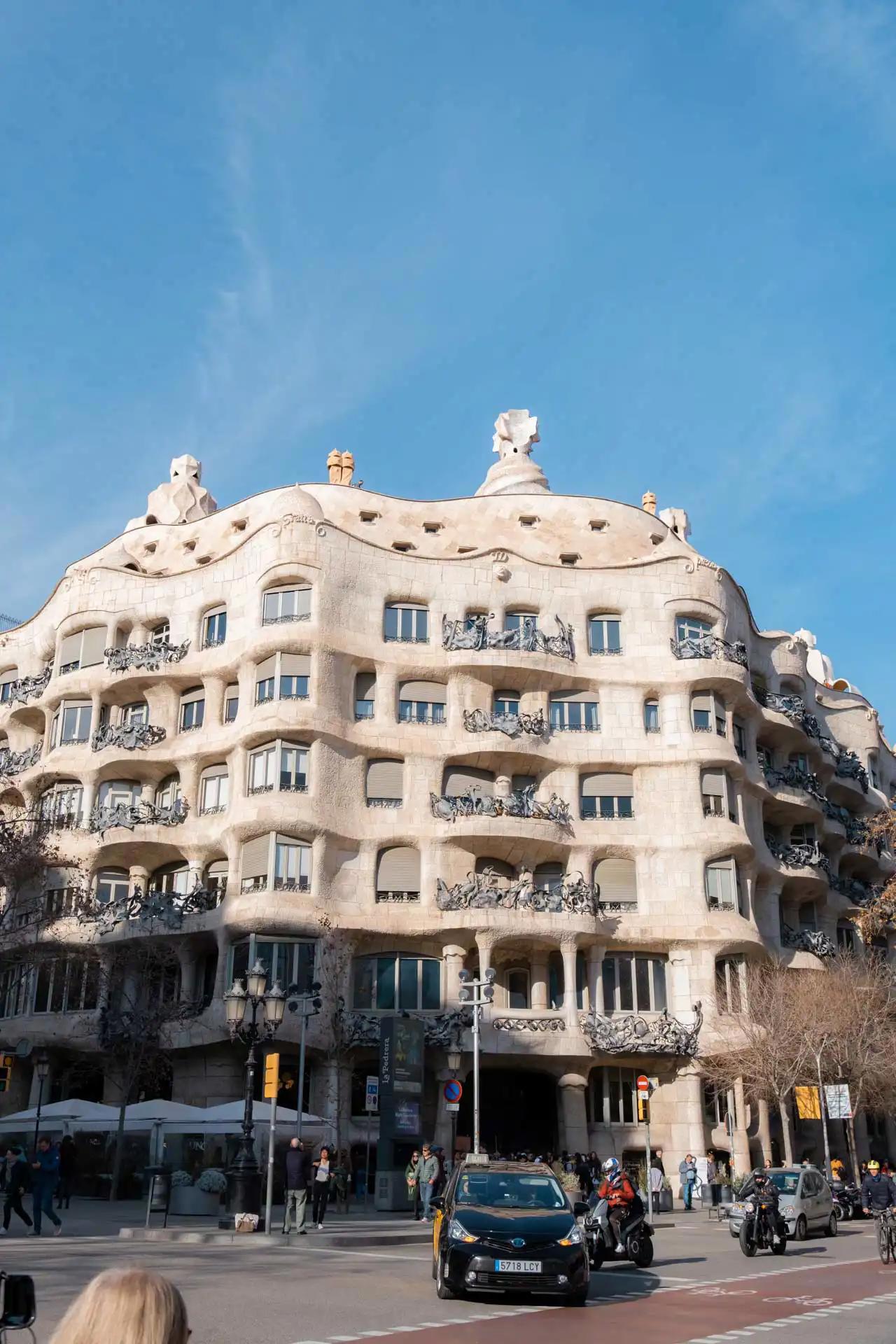
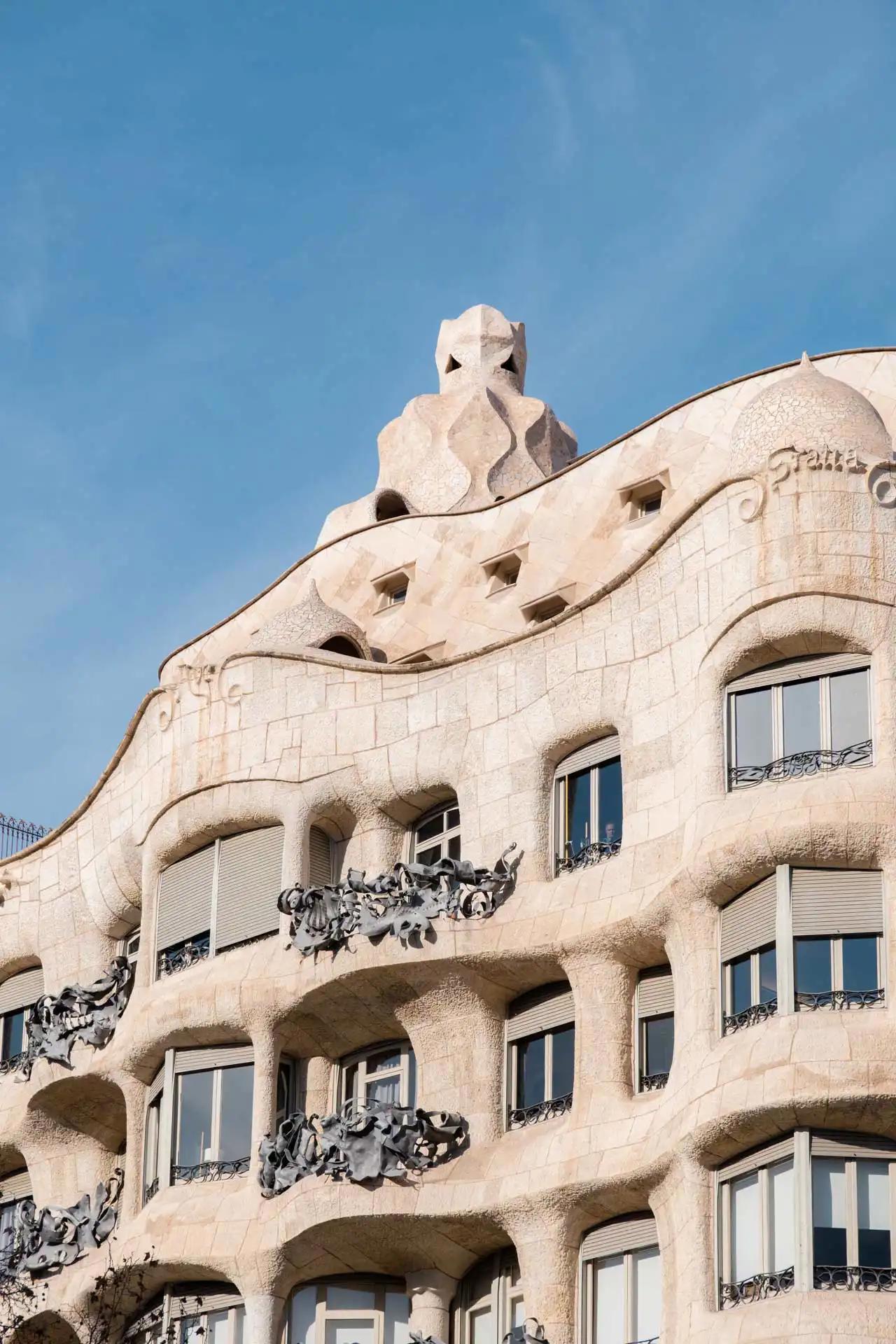
Practical information
🎟️ The price of entry to Casa Milà starts from 25€ per adult. We strongly advise you to buy your ticket online. Don't hesitate to do it in advance, especially during peak season and periods of high attendance.
📍 Address: Passeig de Gràcia, 92 in Barcelona.
🕓 Opening hours: Every day from 9:00 AM to 6:30 PM.
3 • Visit Casa Vicens
The Casa Vicens is Antoni Gaudí's first major project. Unlike Casa Milà or Casa Batlló, Casa Vicens does not feature curves on its facade and is directly inspired by Oriental architecture.
The house nevertheless already presents the interpretations and innovations that the architect will use in his future projects. Less known than its sisters Casa Batlló and Casa Milà, the Casa Vicens can also be visited at a more affordable price.
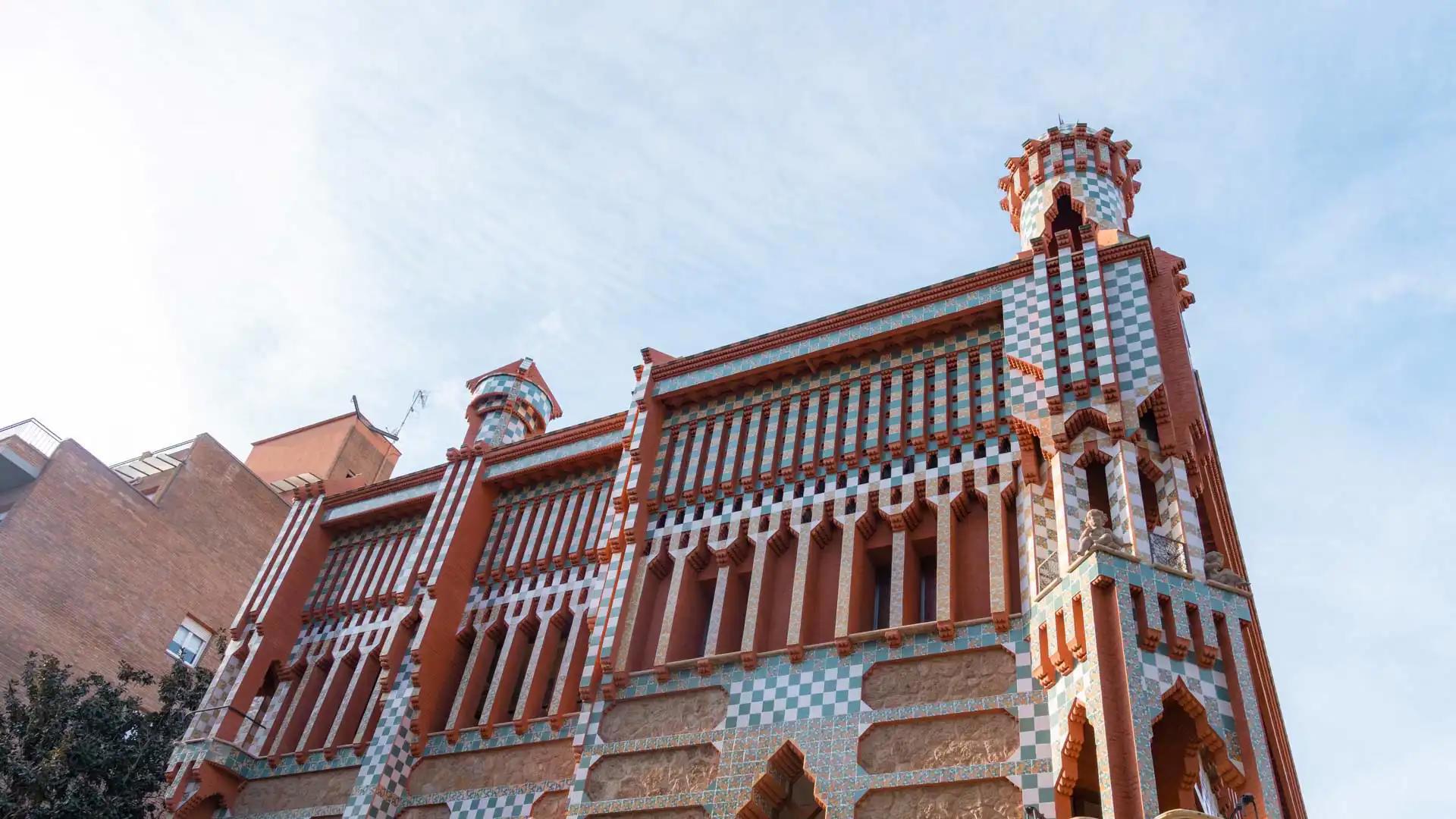
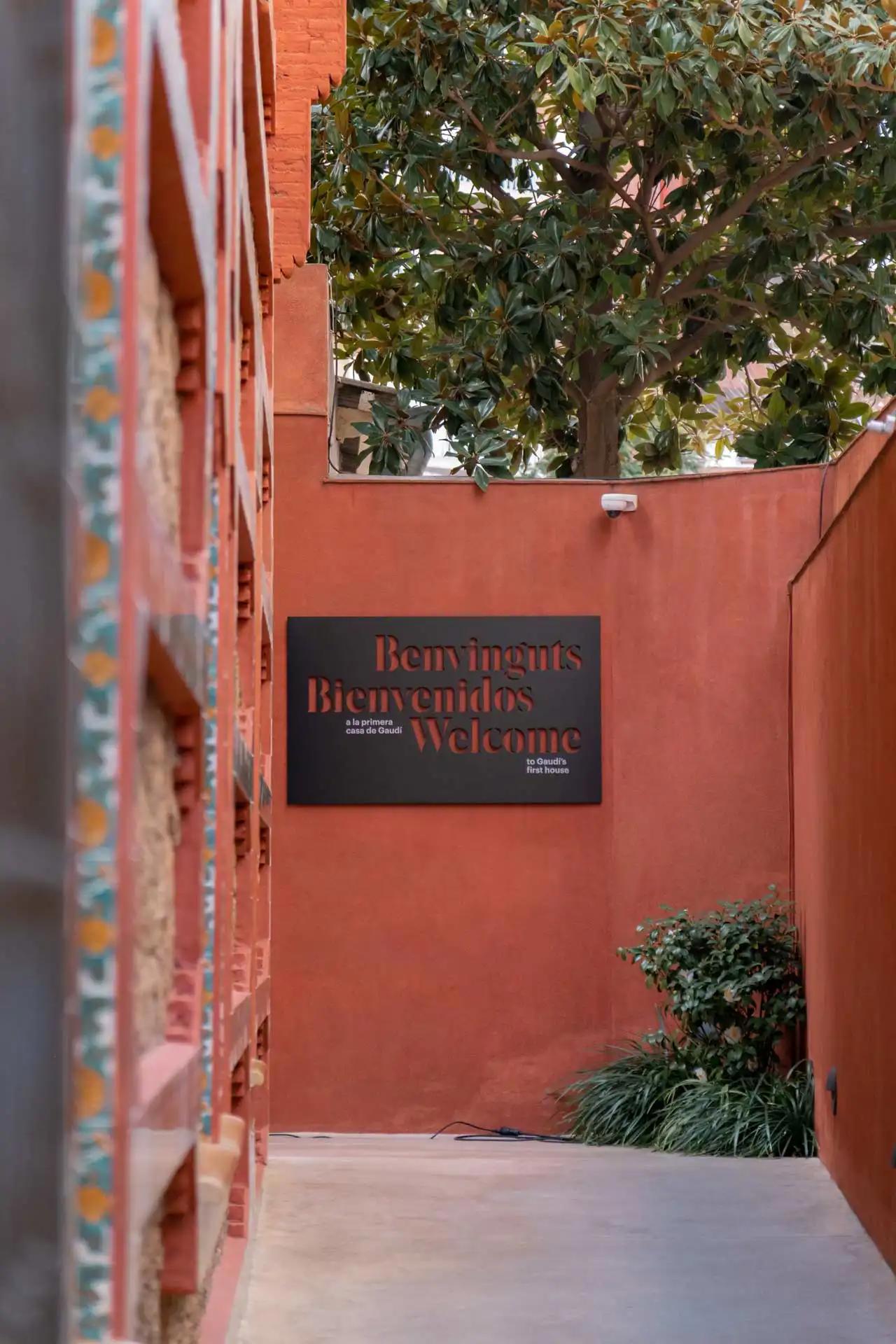
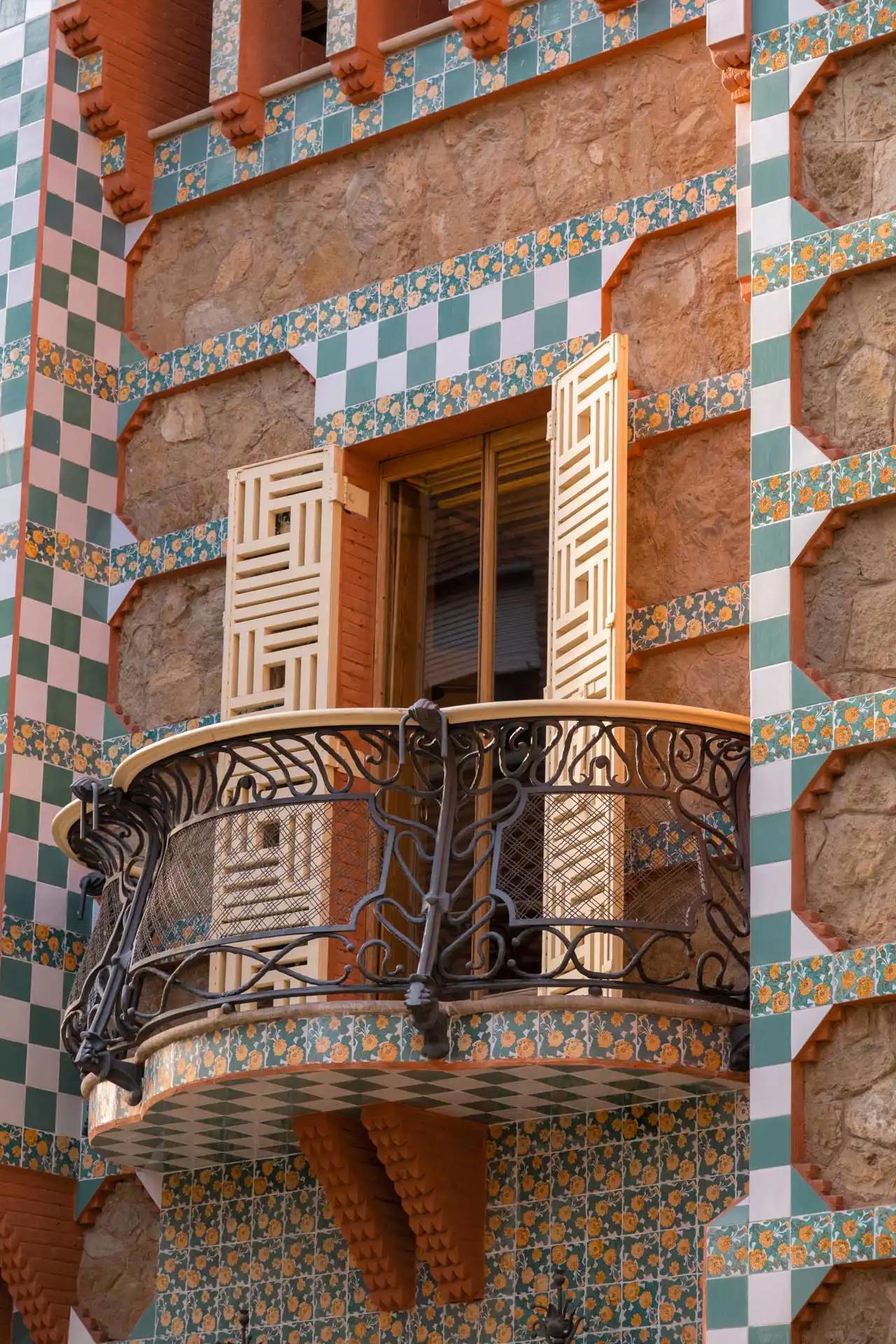
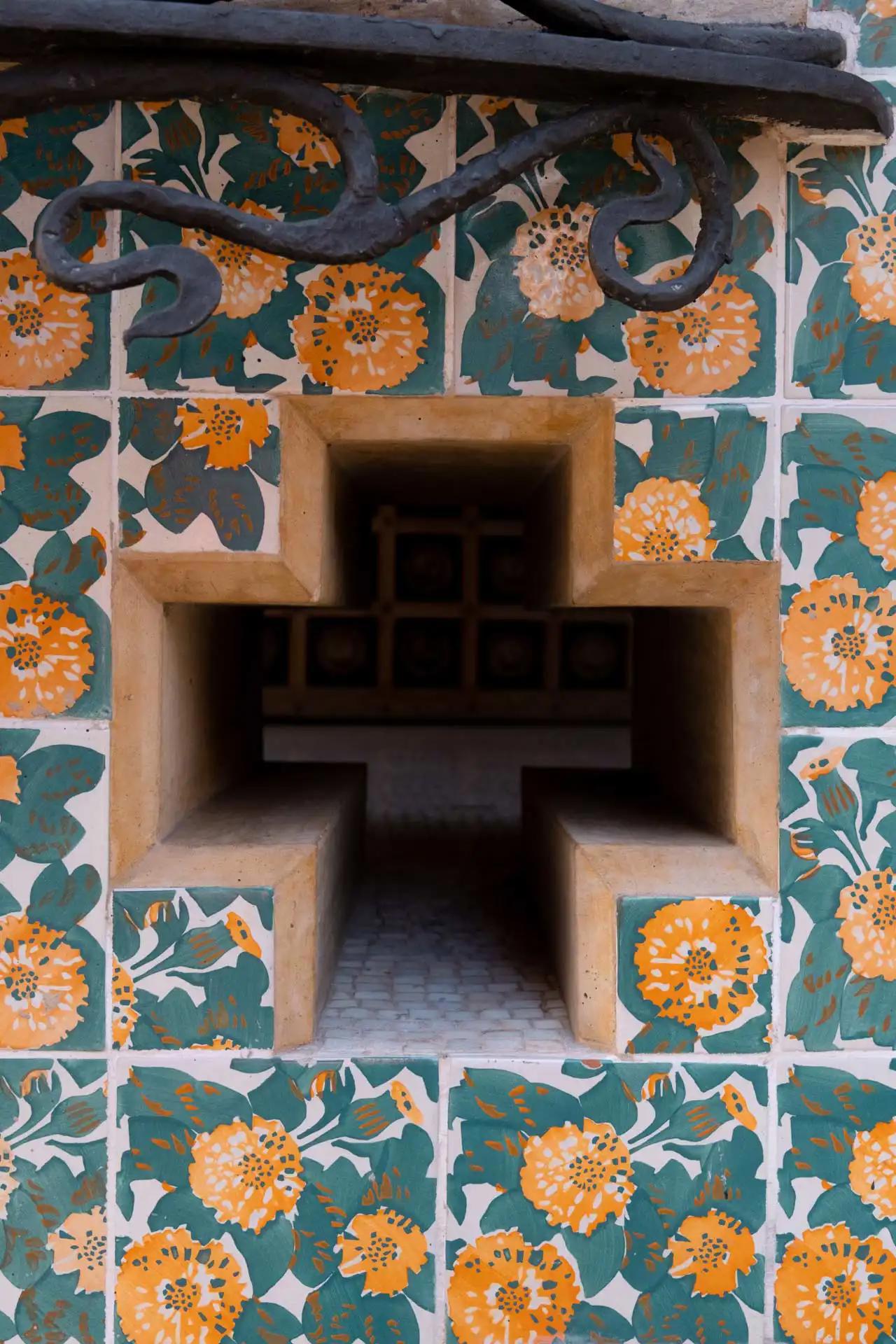
Practical information
🎟️ Entrance to Casa Vicens costs 20€ per adult. We strongly advise you to purchase your ticket online. Don't hesitate to do so in advance, especially during peak season and periods of high attendance.
📍 Address: Carrer de les Carolines, 20-26 in Barcelona.
🕓 Opening hours: November to March: Monday from 10:00 to 15:00 and Tuesday to Sunday from 10:00 to 19:00 – April to October: every day from 10:00 to 20:00.
4 • Visit Park Güell
Park Güell is a creation of Antoni Gaudí designed by the architect at the request of his patron who wanted to create a garden city on a hill in the city of Barcelona. Initially, the project was to include a chapel and 60 houses scattered throughout the park, the project cost becoming too high only 4 houses were ultimately built.
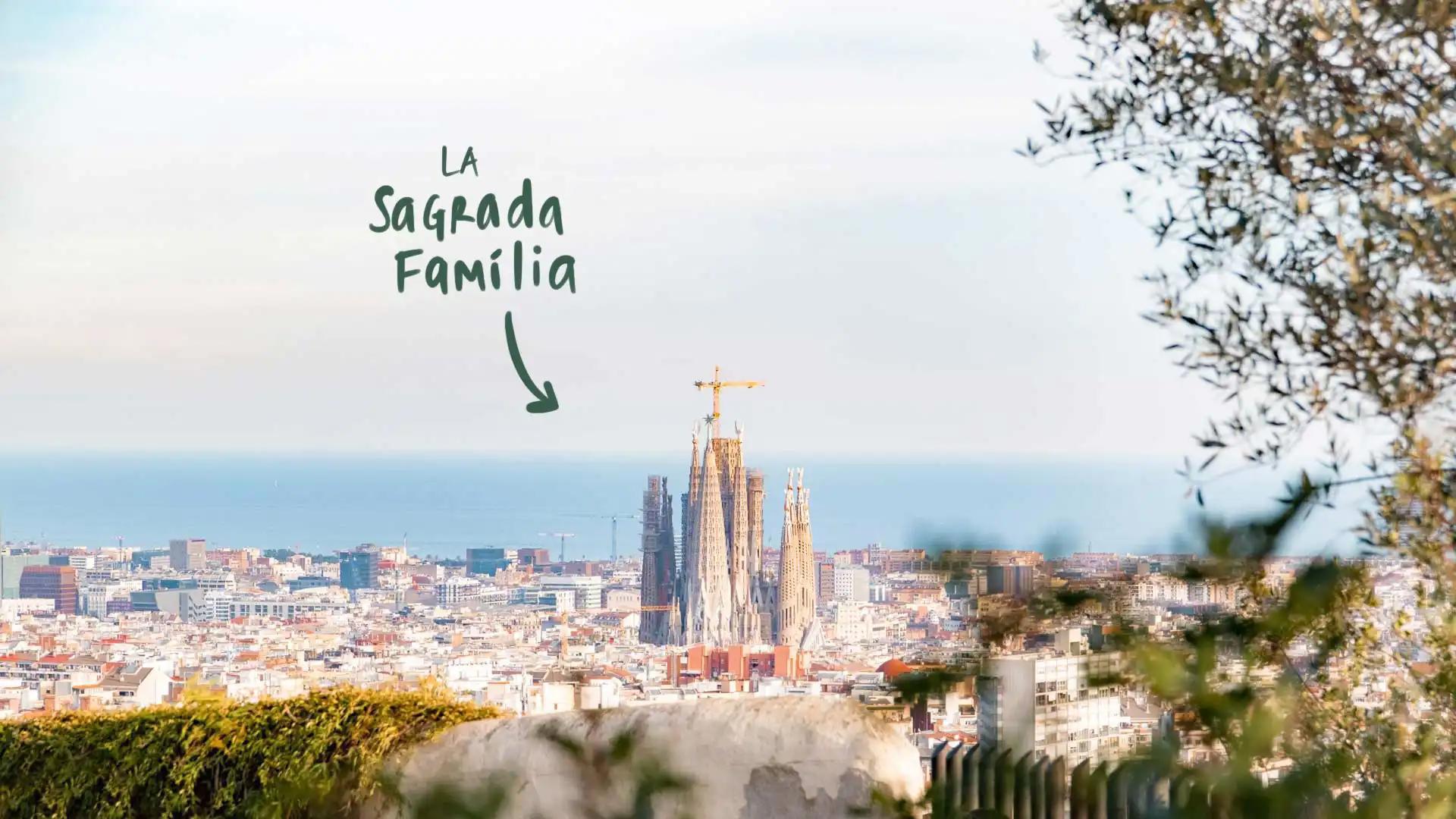
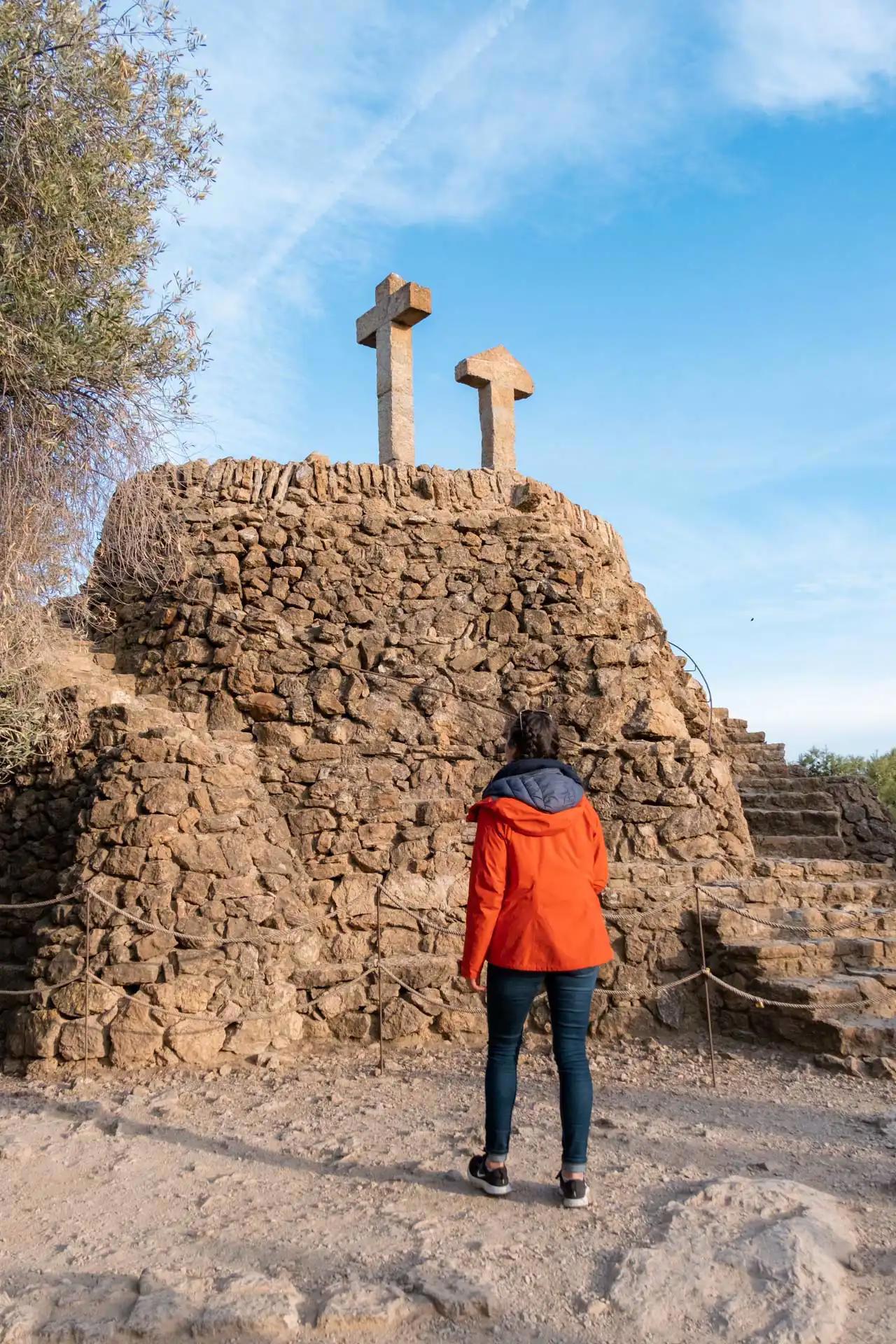
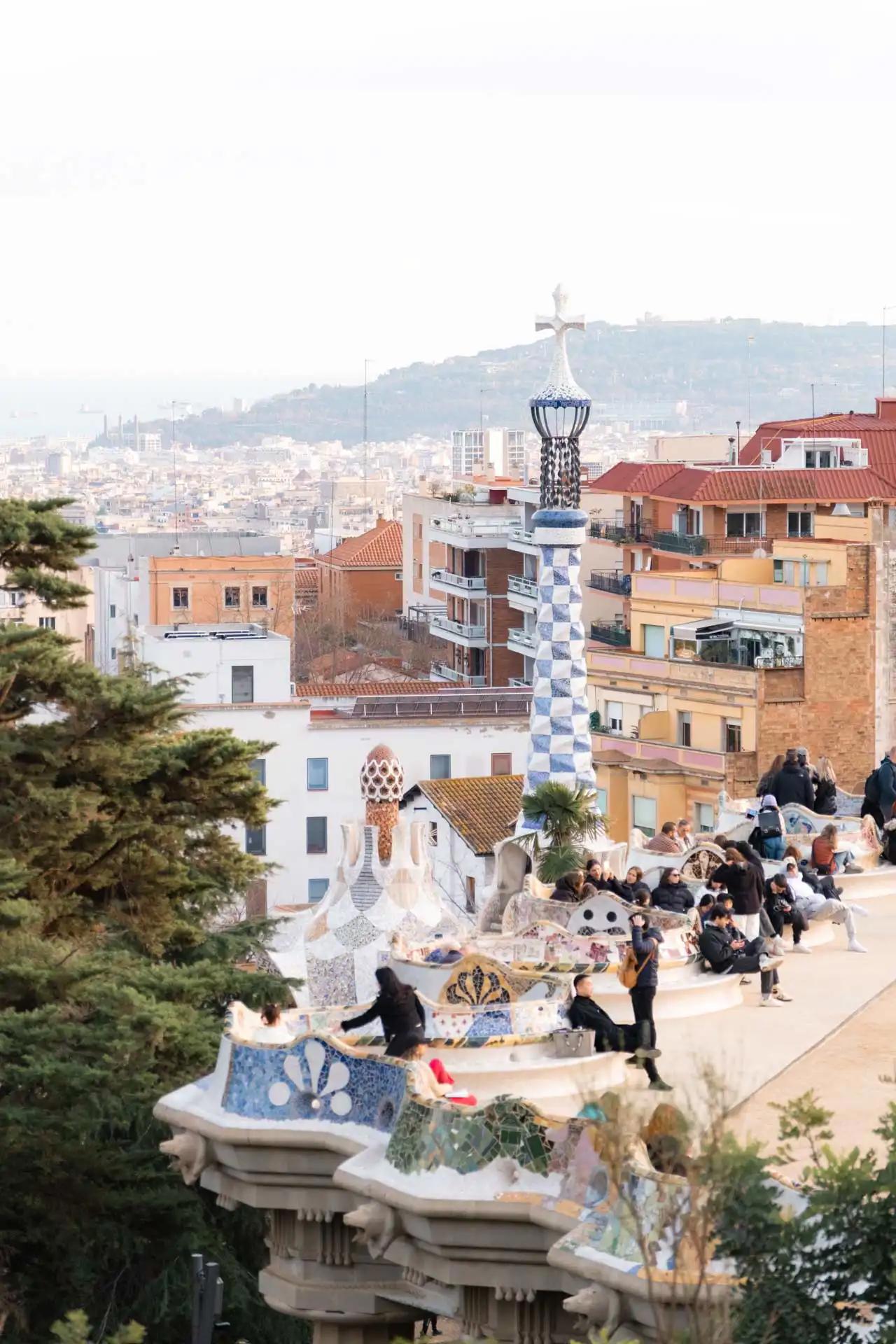
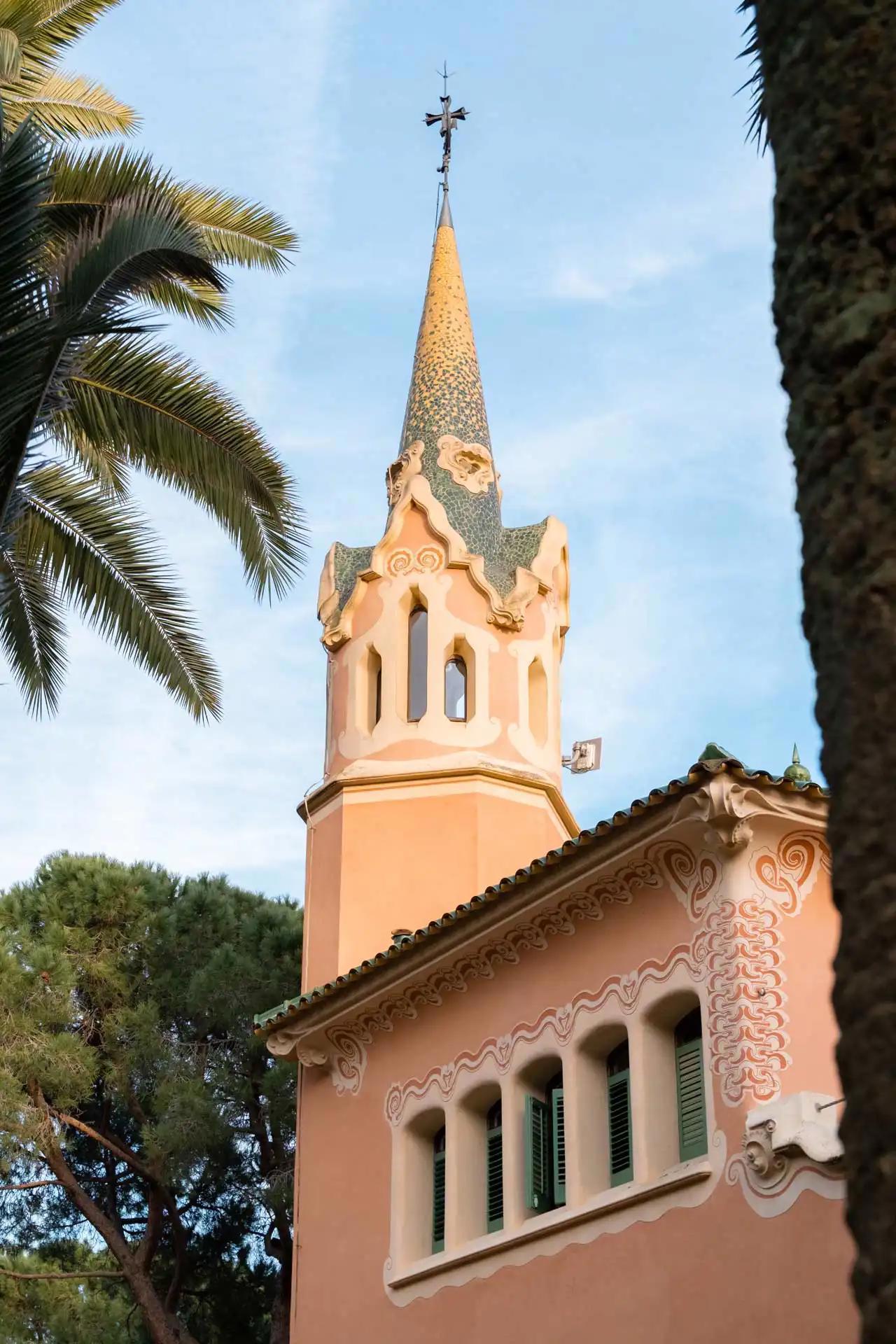
Always respectful of nature, Gaudí strived not to alter the terrain's contours and decided to adapt his creations to it. The park is large and organized around the Greek Theatre (or Place of Nature). This large square is splendid and offers a magnificent view of the city. The place is ideal for seeing the warm lights of sunrise or sunset over Barcelona.
Originally, it was designed to host open-air performances that could be watched from the ledges and benches built all around the square. These famous benches were decorated with recycled mosaic, one of Gaudí's favorite techniques combining recycling and art.
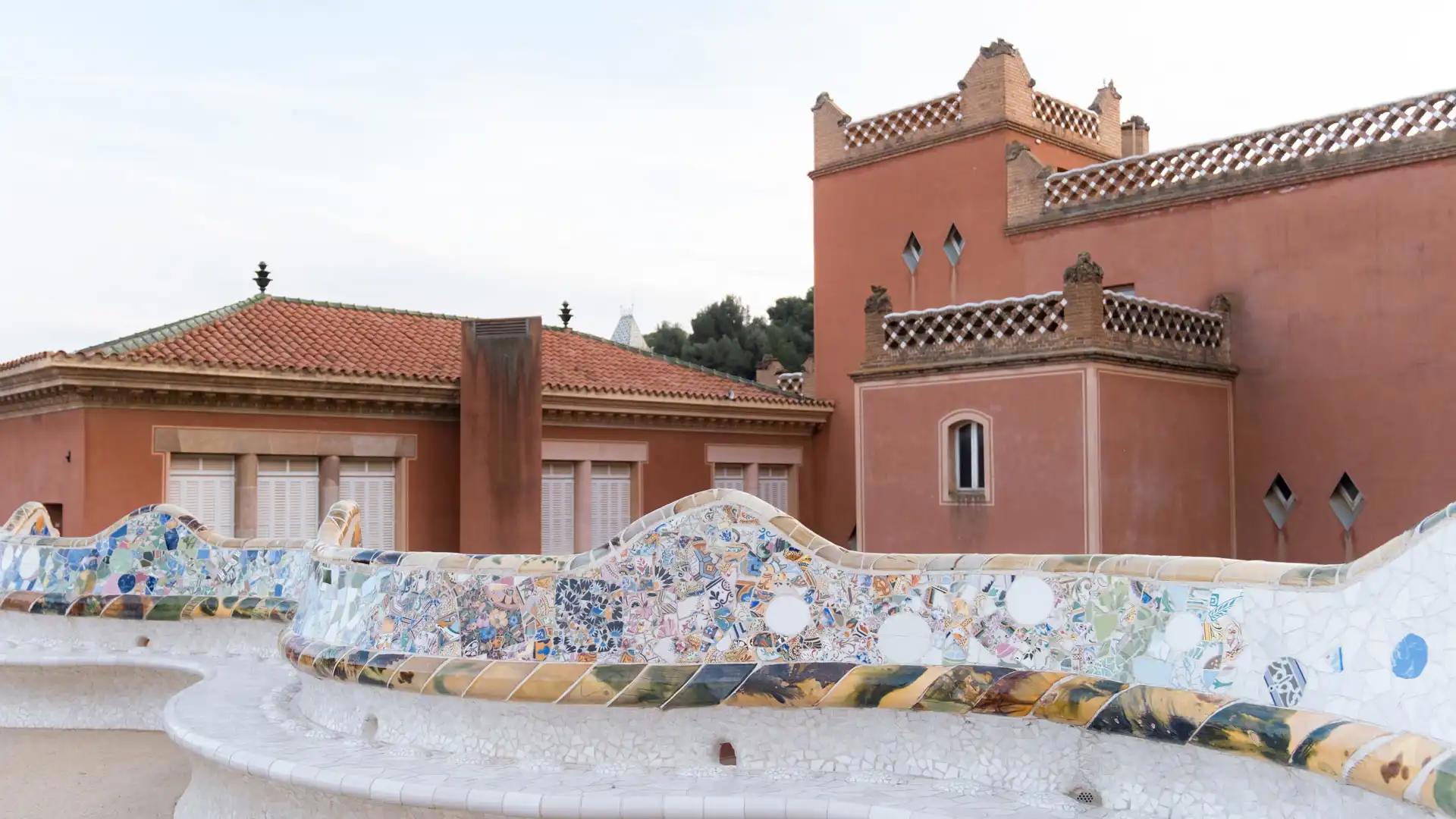
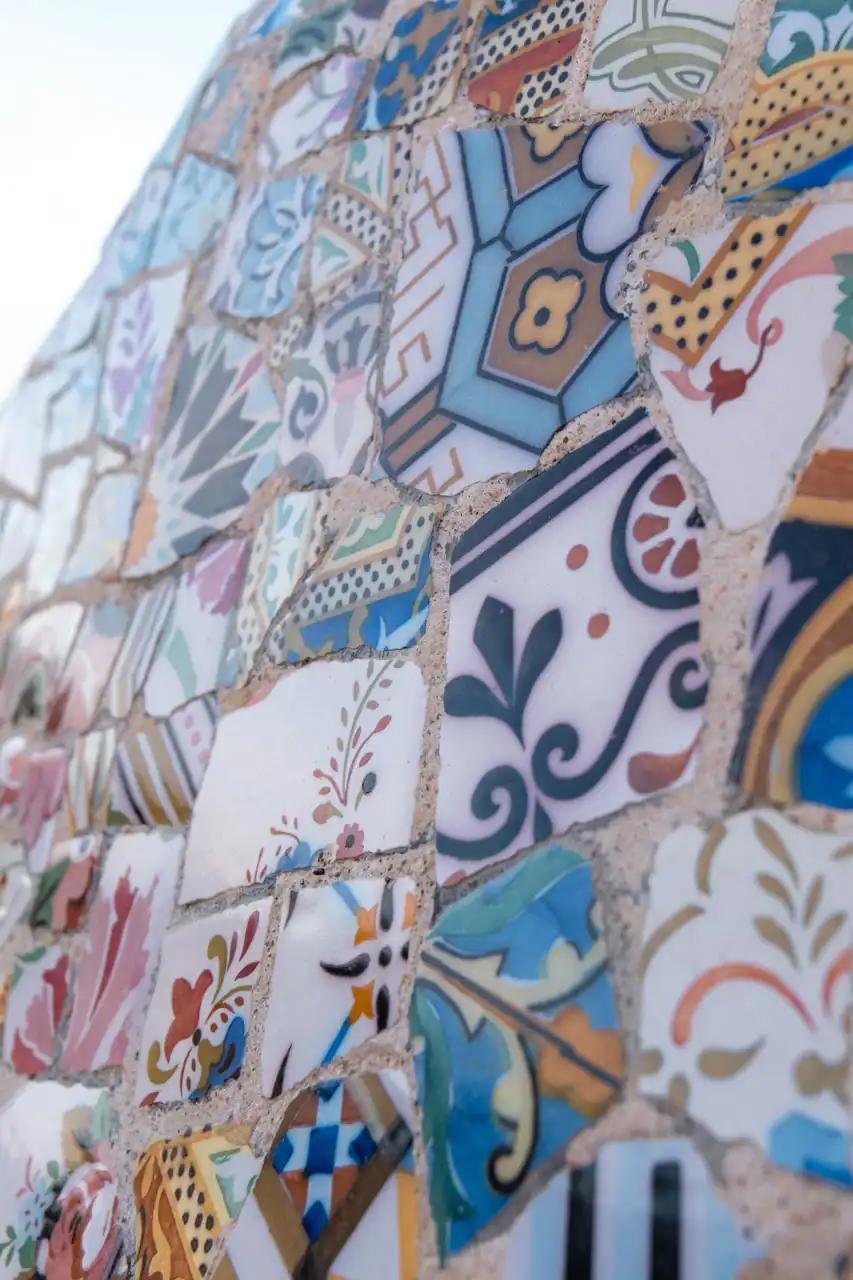
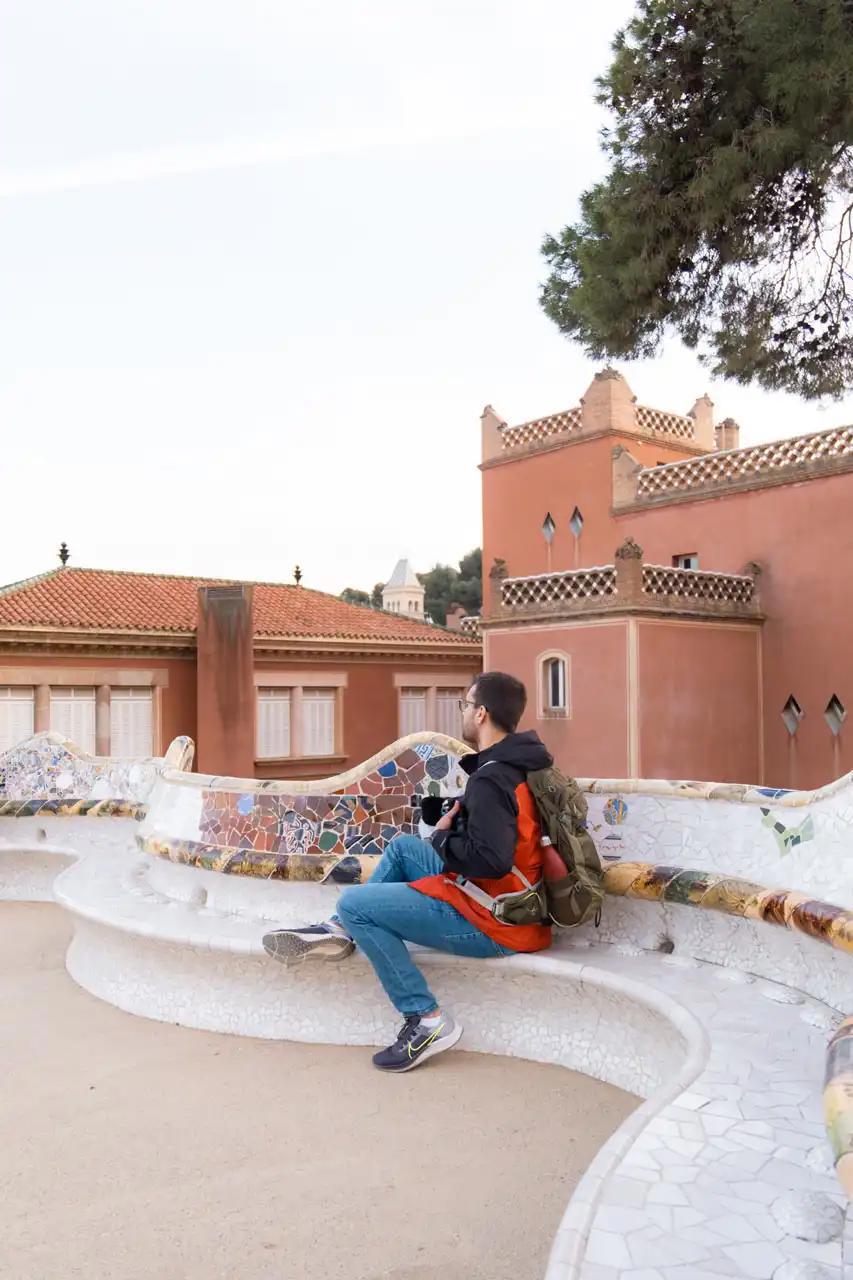
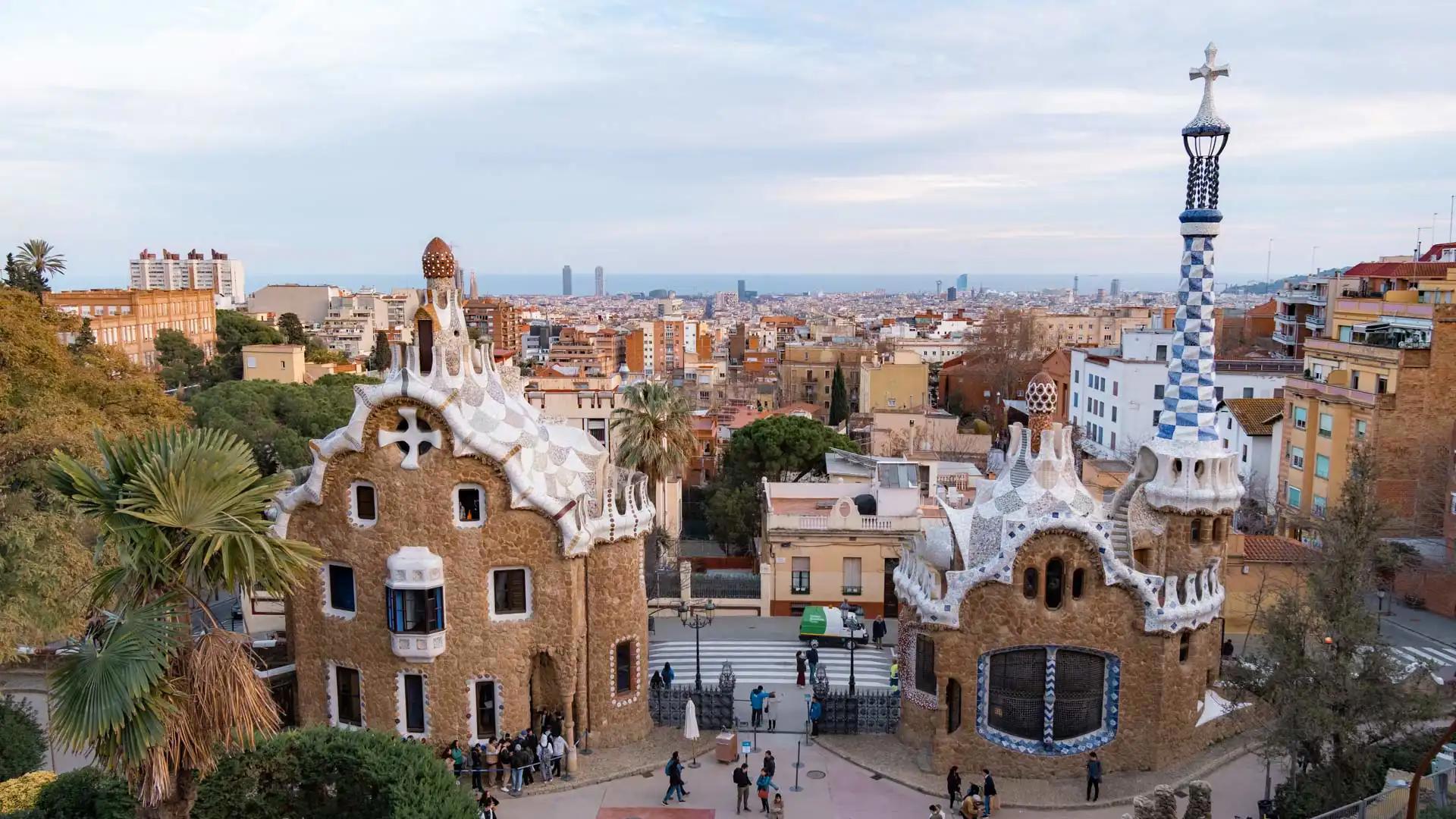
Nature's Place is the only exception where Gaudí modified the park's environment. A part was carved into the rock of the hill and the belvedere is supported by the columns of the Hypostyle Hall. Don't forget to look up to observe the few mosaics on the ceiling.
For a few years now, access to Park Güell has become paid and the main entrance to the park has become the exit.
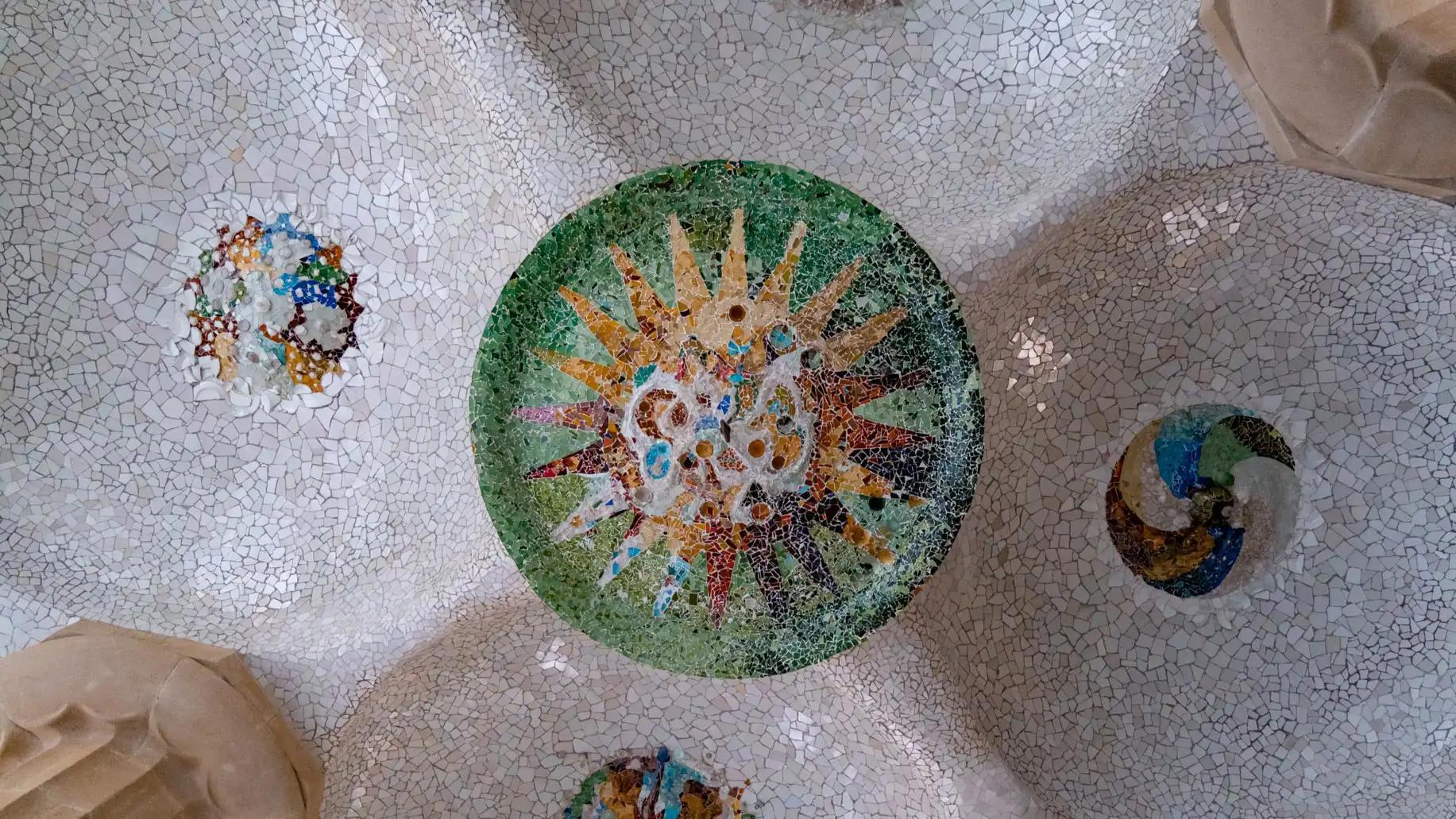
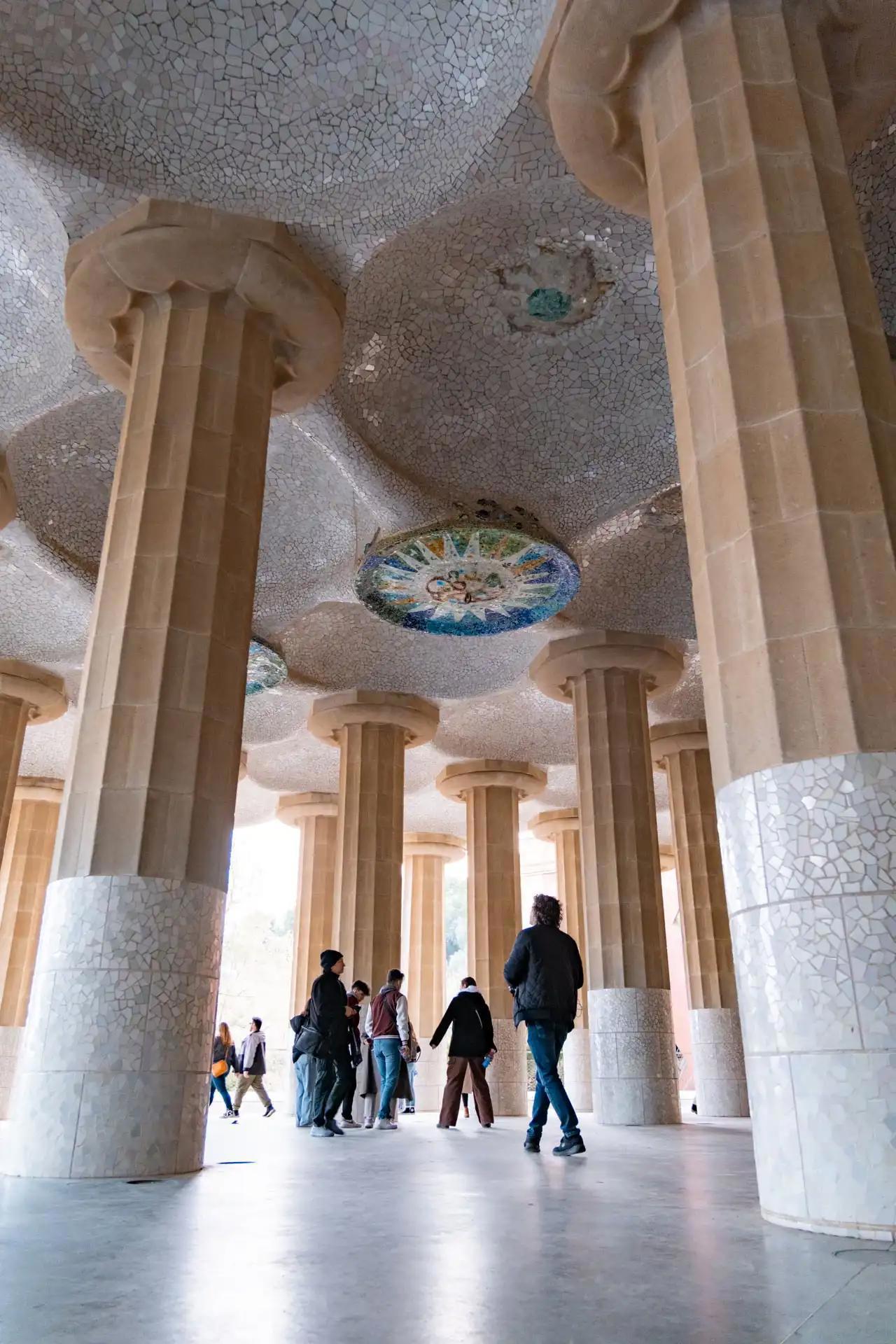
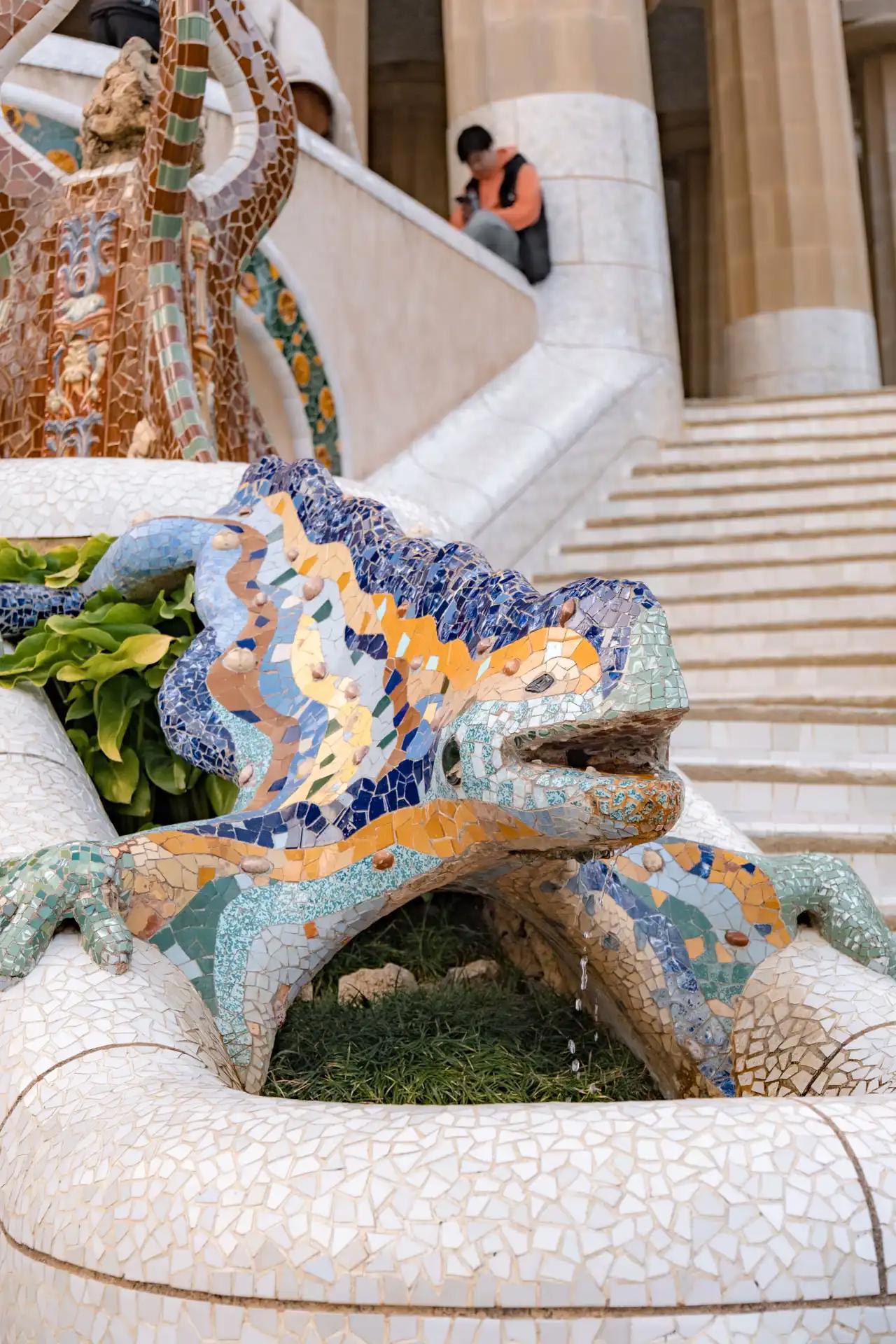
Practical information
🎟️ Entrance to Park Güell costs 10 € per adult. We strongly advise you to purchase your ticket online. Don't hesitate to do so in advance, especially during peak season and periods of high attendance.
📍 Address: Park Güell in Barcelona.
🕓 Hours: Open all year round. Opening hours vary by season, you can find them on the website below.
5 • Sagrada Família
The Sagrada Família is undoubtedly the most monumental project Antoni Gaudí ever worked on!
So important that it has now been under construction for over 140 years. Gaudí was entrusted with the project at 31, and he quickly realized that he would never see his work completed.
Like all of Gaudí's projects, La Sagrada Família is an example of modernist architecture. The architect drew on his liturgical knowledge and research to ensure that the architecture of the Sagrada Família represents all the elements of the Christian religion.
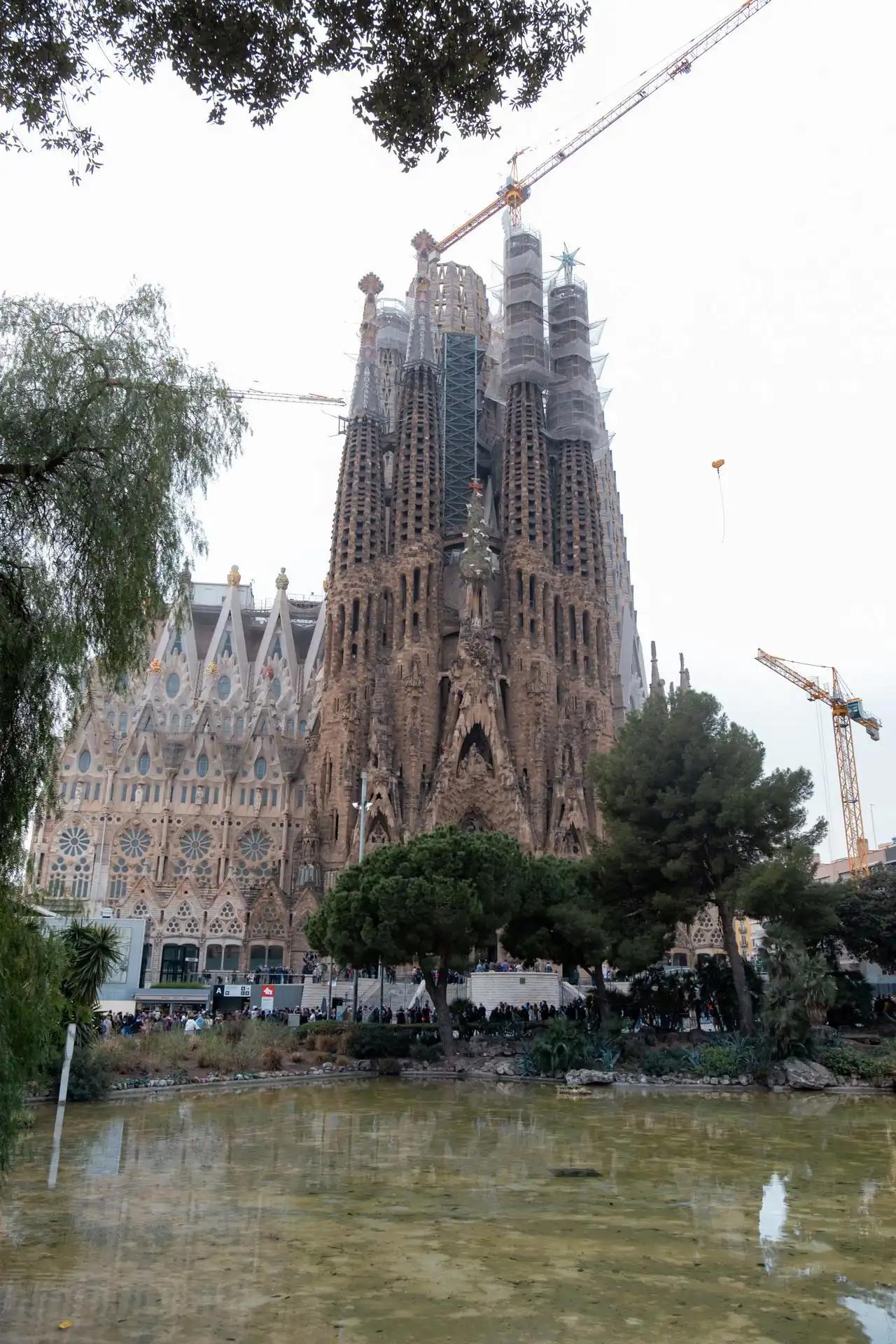
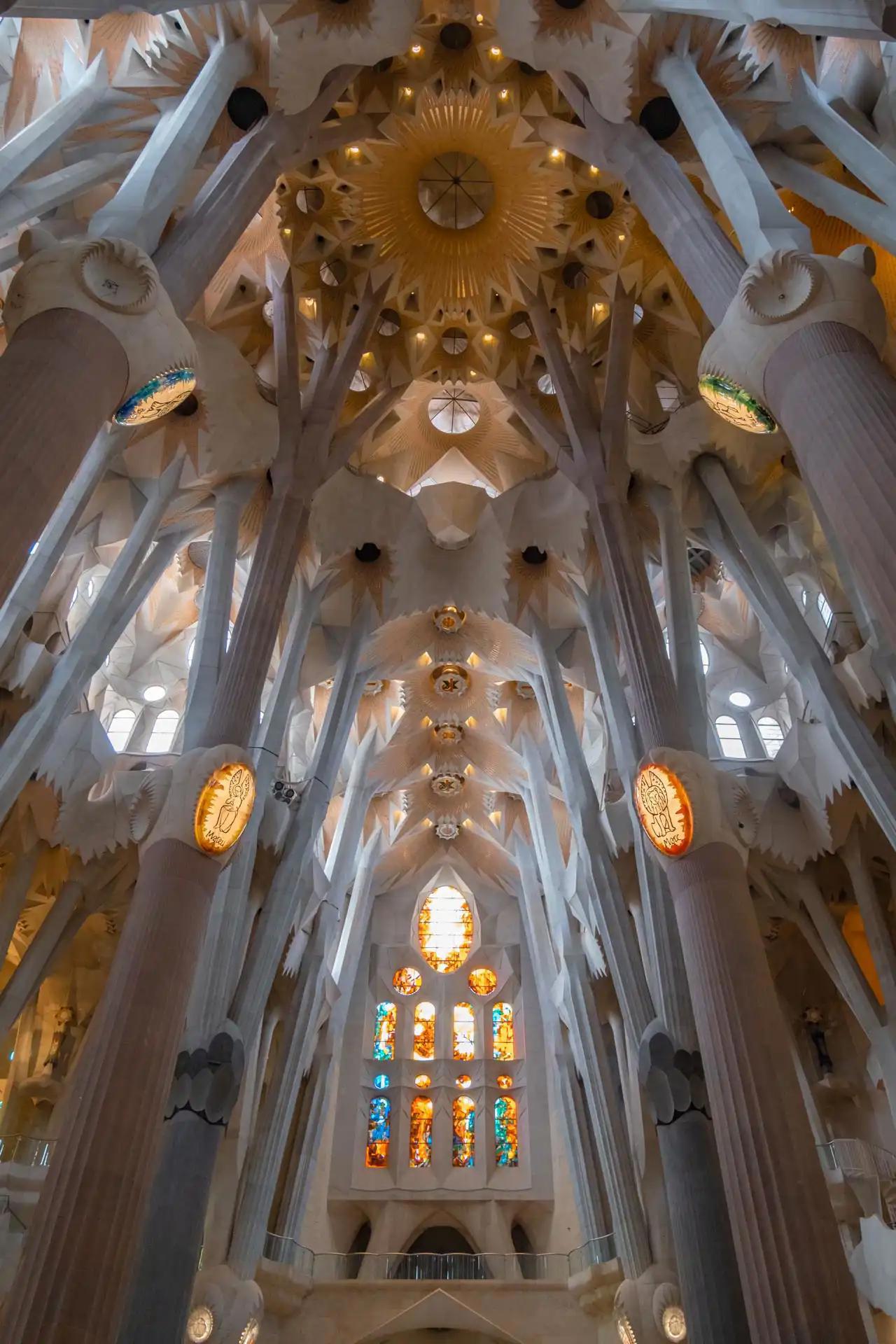
The Nativity façade
The main façade (which is also the entrance we use to begin the visit) is called “The Nativity façade”. Very imposing, it includes numerous elements that refer to the human and family life of Jesus. In the center of the three portals representing hope, charity, and faith rises a cypress tree surrounded by 4 towers.
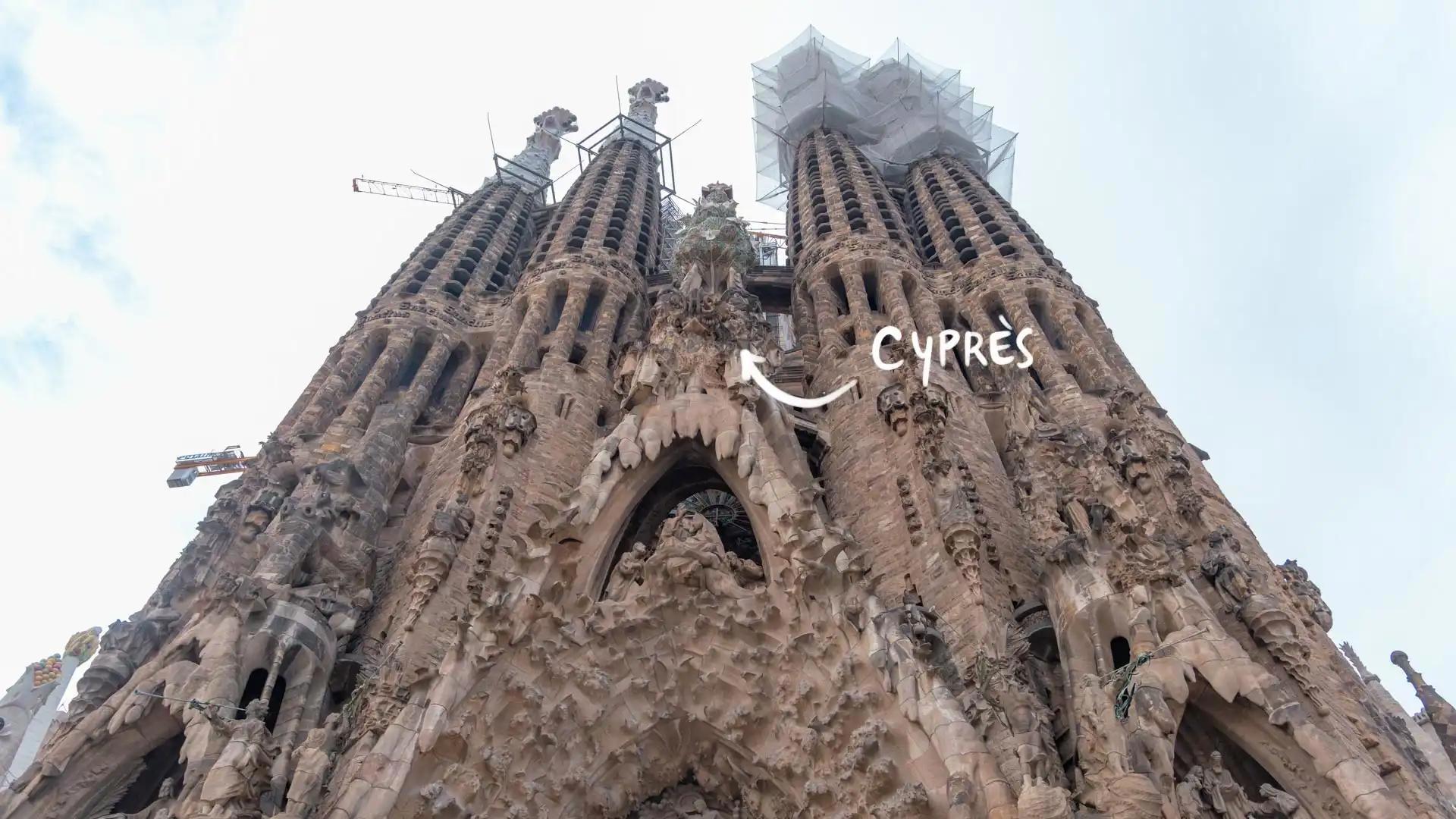
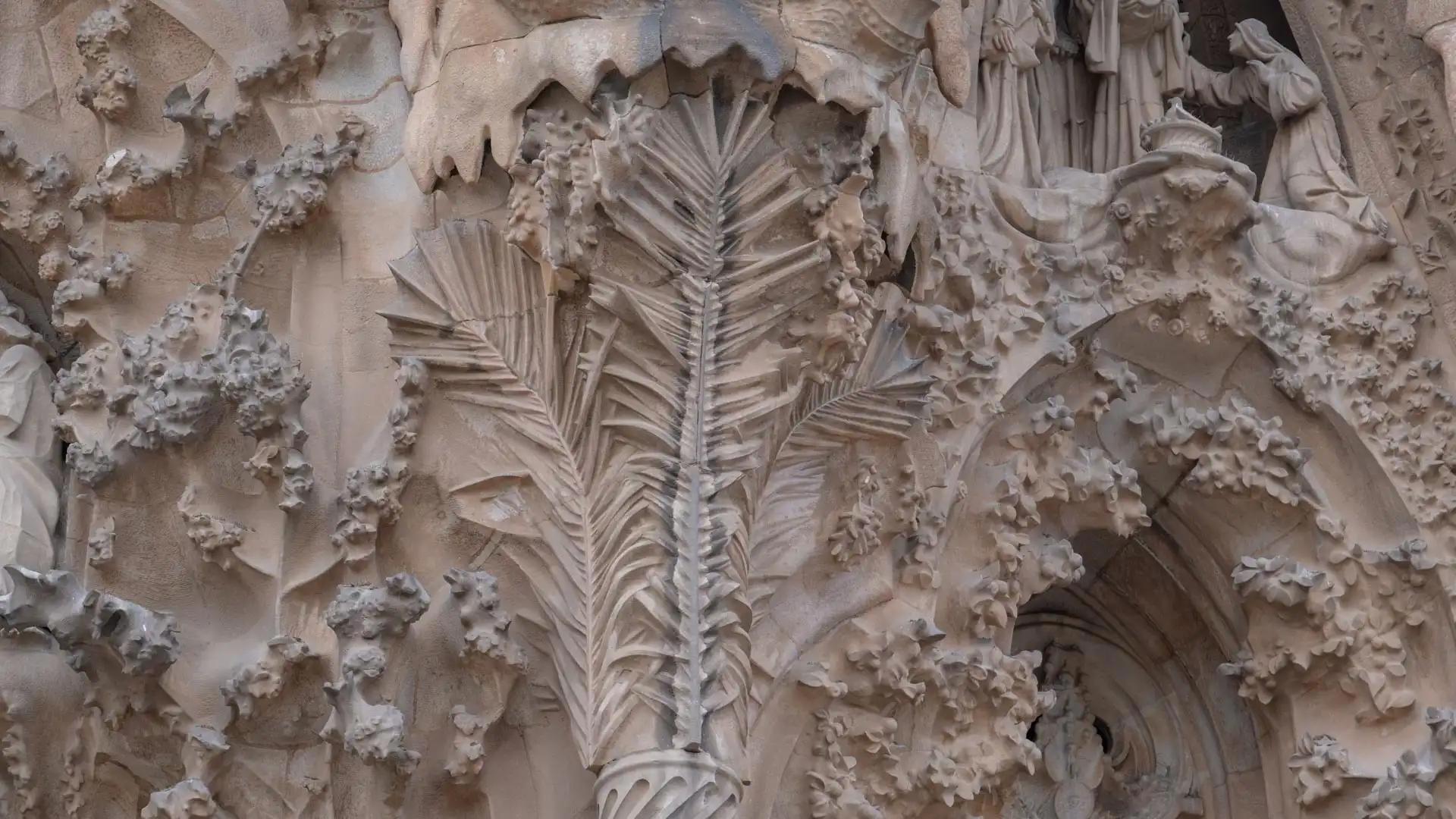
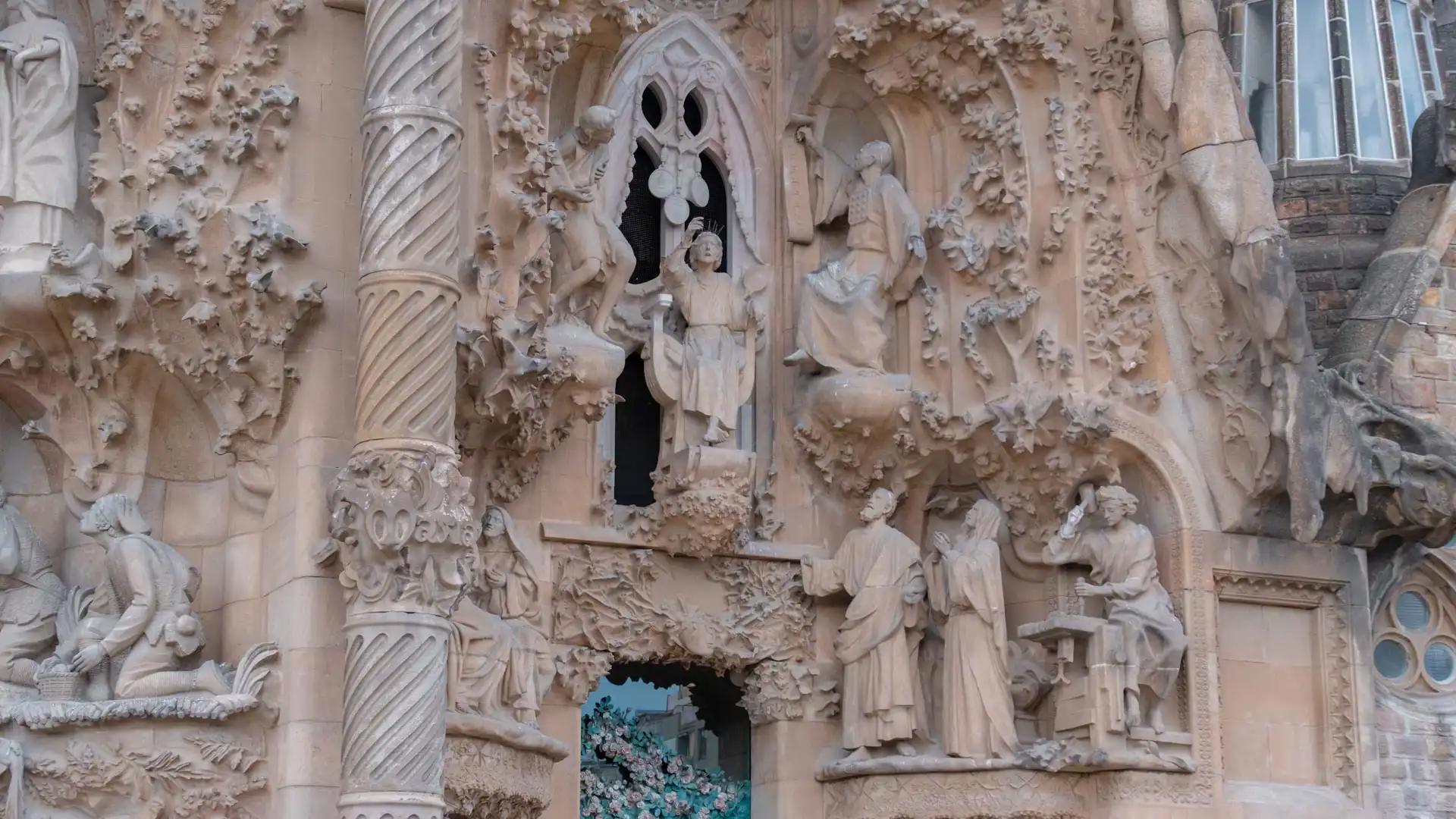
The Sagrada Família towers
No element is left to chance in Gaudí's plans; the 18 towers built on the basilica are all dedicated to biblical figures. 12 of them represent the apostles, 4 others the evangelists, an imposing tower topped with the morning star for Mary, and finally the largest symbolizes Jesus Christ. All these elements and towers make the basilica a very significant edifice, but do not detract from the masterpiece that is the Sagrada Família.
Gaudí, always in harmony with nature, will give the tallest tower a height of 172.5 meters, stopping just below the highest point of Montjuïc hill because, for him, human creation should never surpass that of Mother Nature.
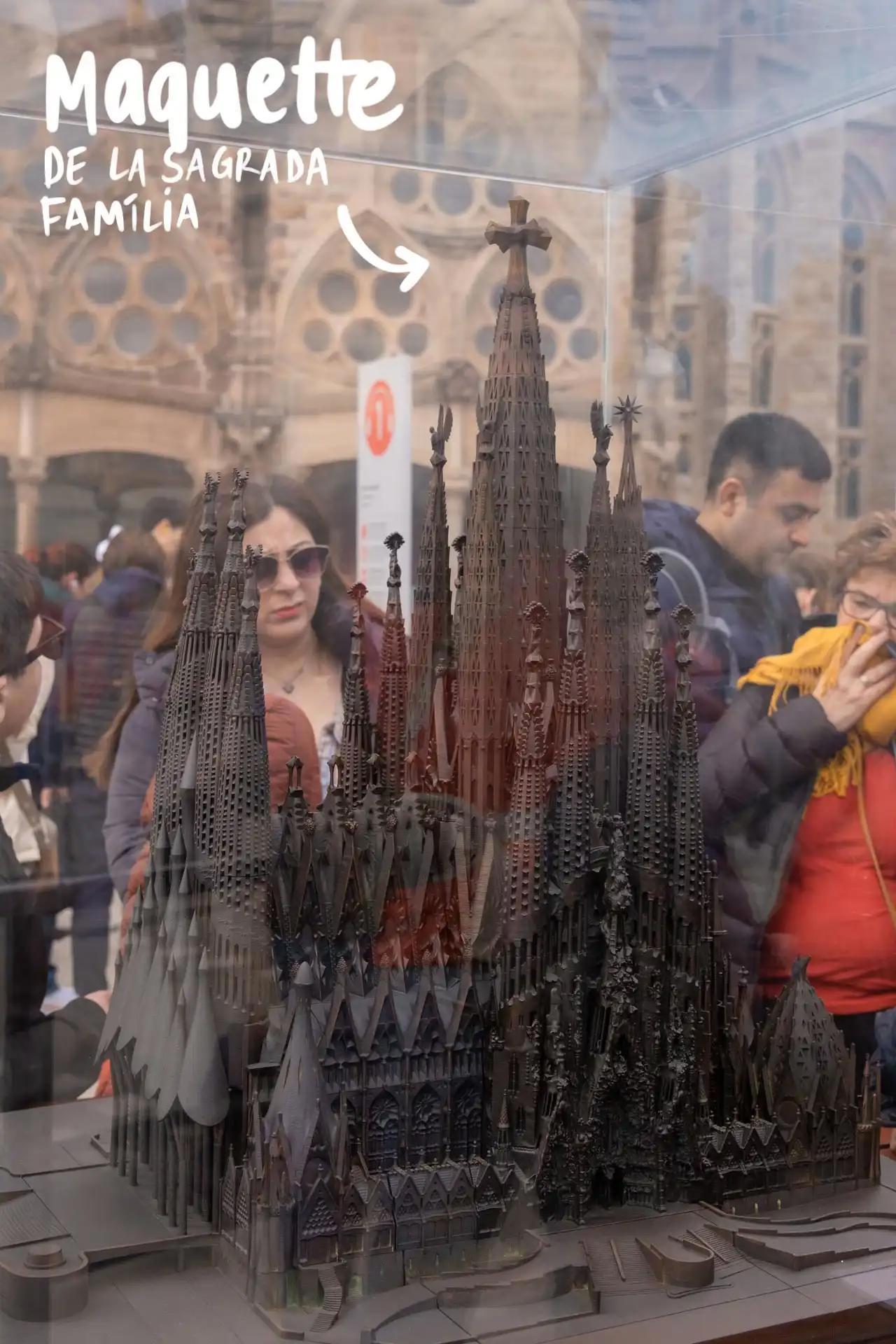
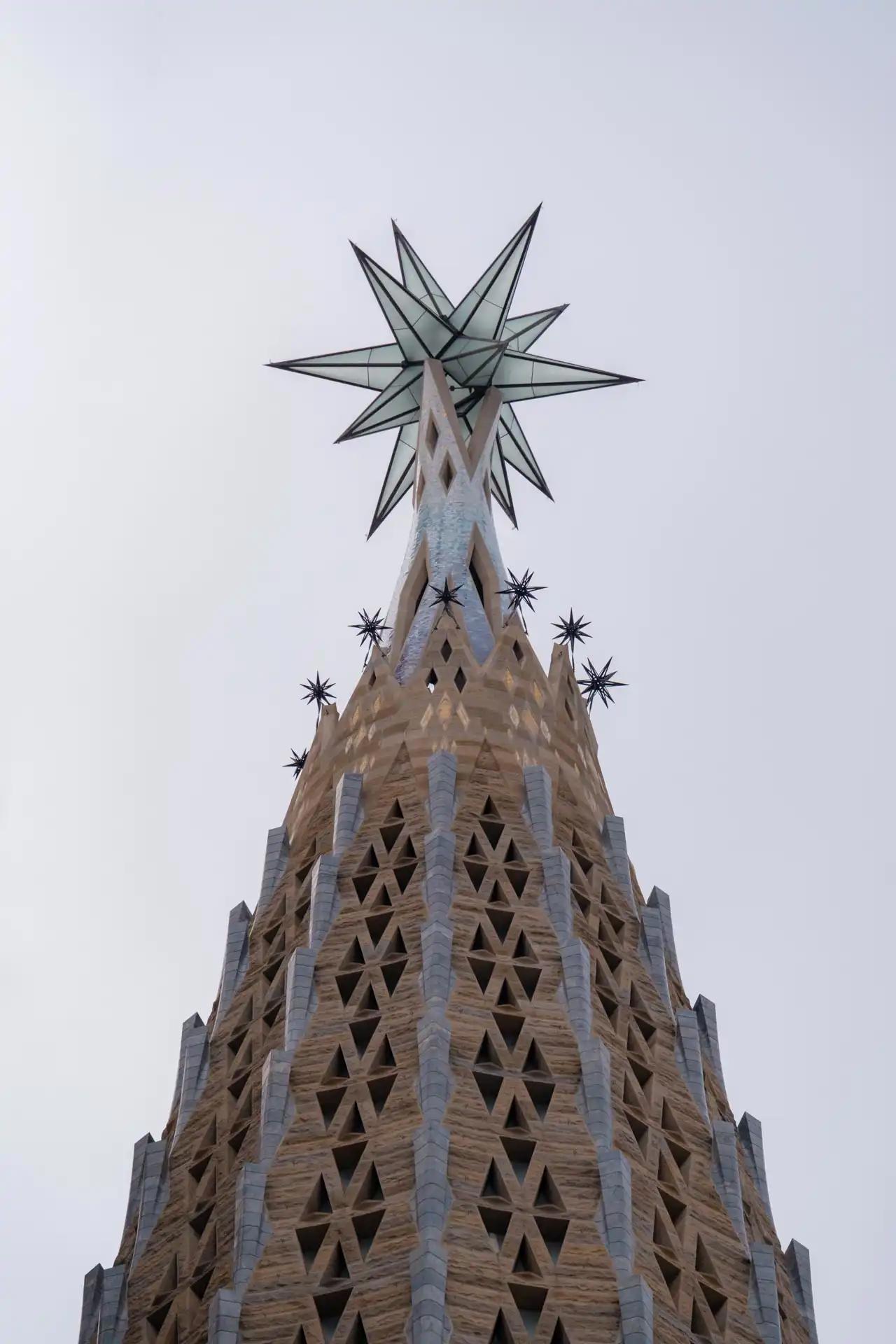
Visiting the interior of Sagrada Família
The part, which for us, was the most impressive is the interior of the basilica. Gaudí, in his modernist and naturalistic architectural endeavors, wanted to find a way to build a very high nave without weighing down his work with large, massive columns that would have distorted the lightness of the nave.
This is how these tree trunks and their stone branches were born, which, in addition to giving us the feeling of being in a forest where light penetrates through the branches of the trees, have a real architectural interest because they support the enormous towers built above the basilica.
The nave's vault is undoubtedly the most beautiful we have ever seen, numerous details serve as a reminder of liturgical rites, but what impresses us most are the light plays that reflect on the light stone used to build this vault!
Gaudí wanted the interior of the nave to also recall the themes of the different facades. That's why, on the side of the Nativity facade, the stained glass lets through a light with cooler colors ranging from blue to green to evoke the nature and the evolution of Jesus's and his family's life on earth. On the Passion facade side, the colors are warm and have reddish-orange tones.
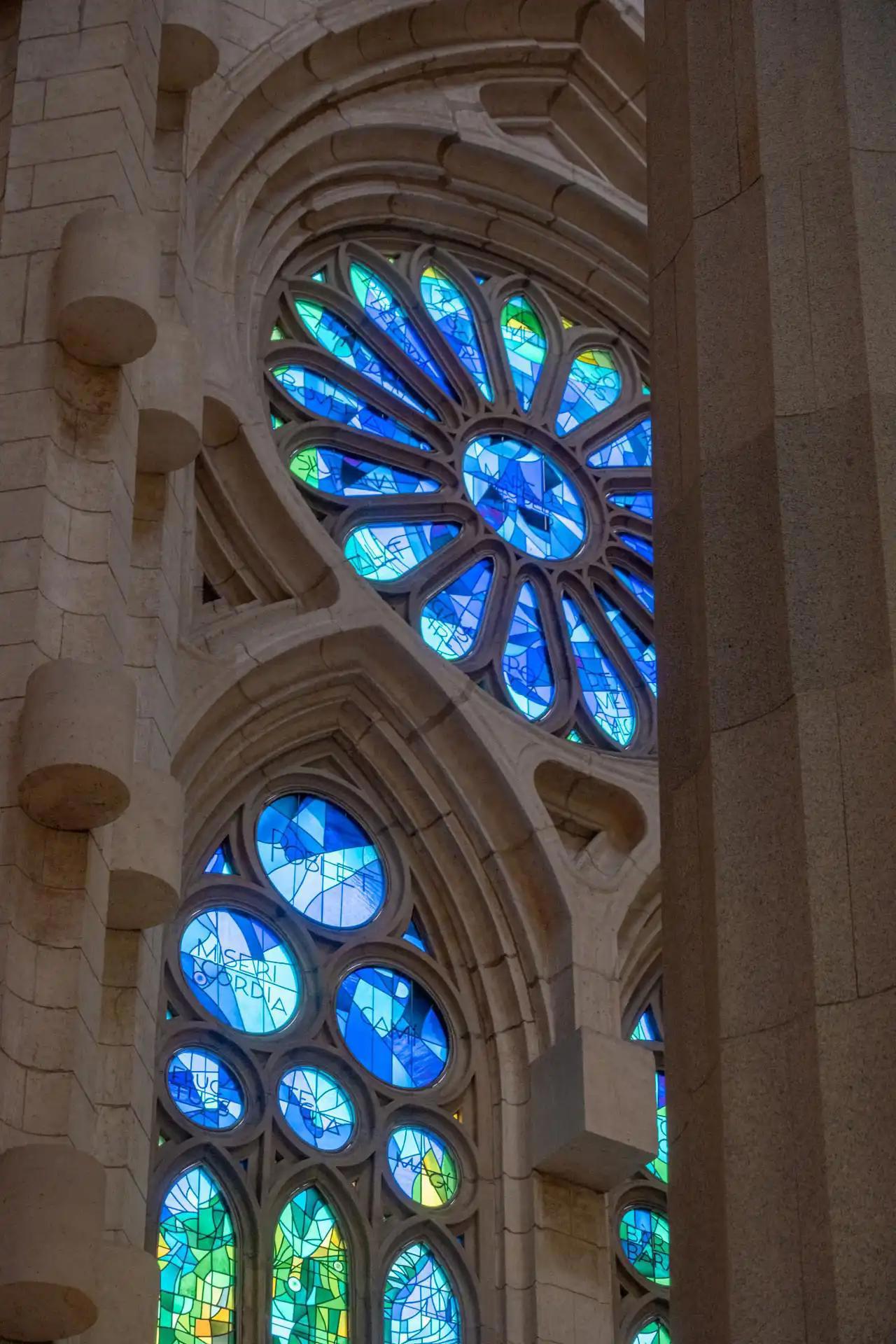
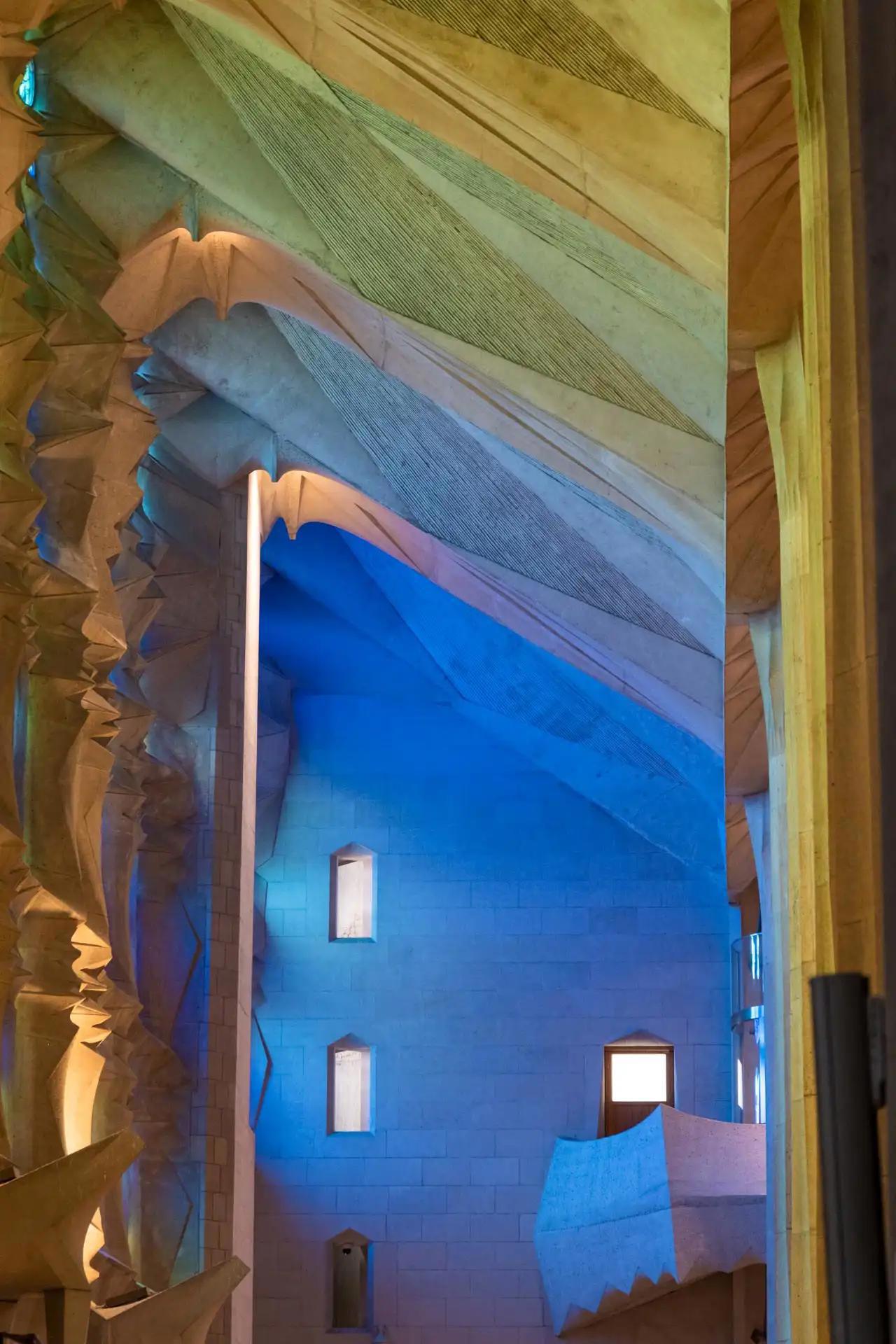
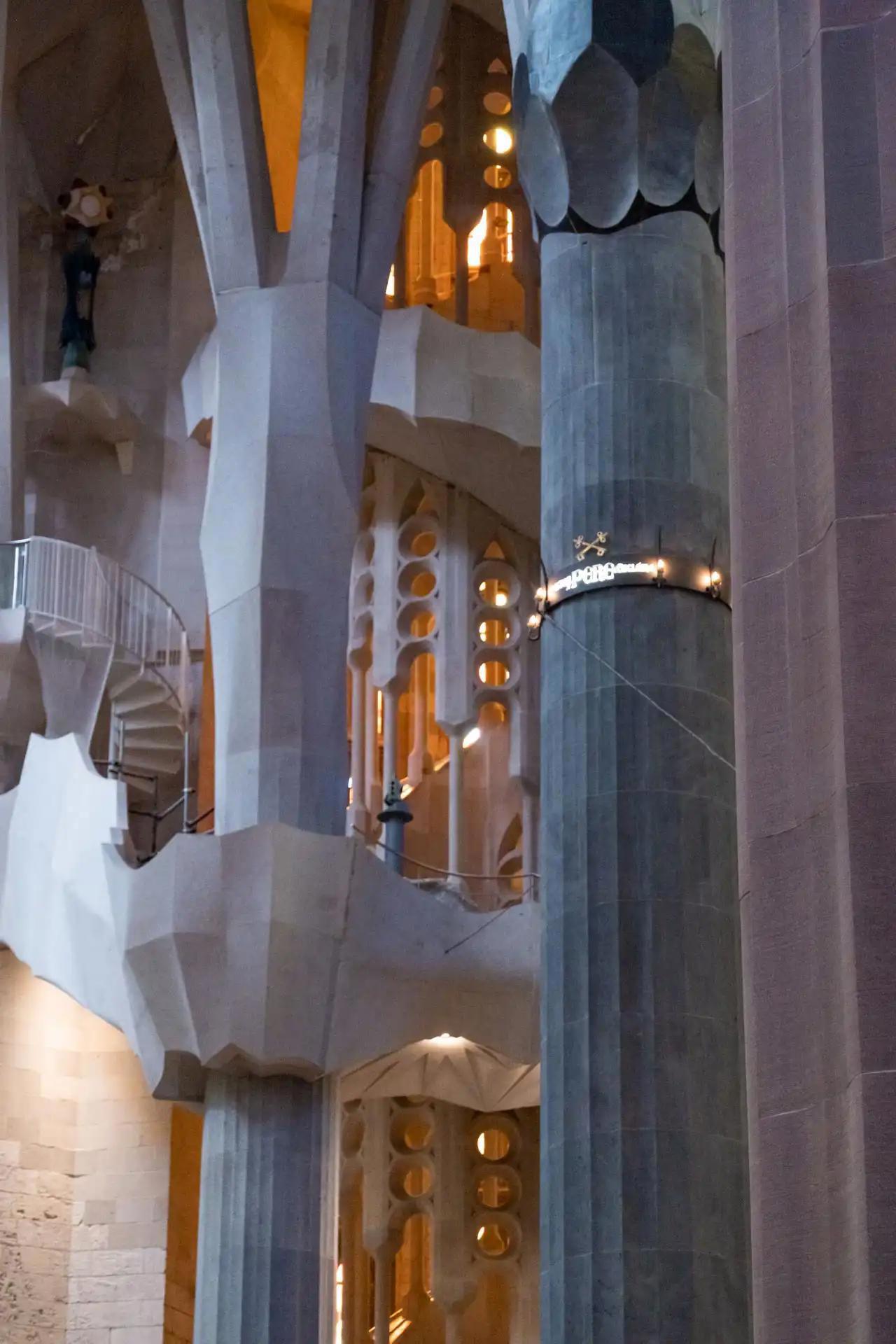
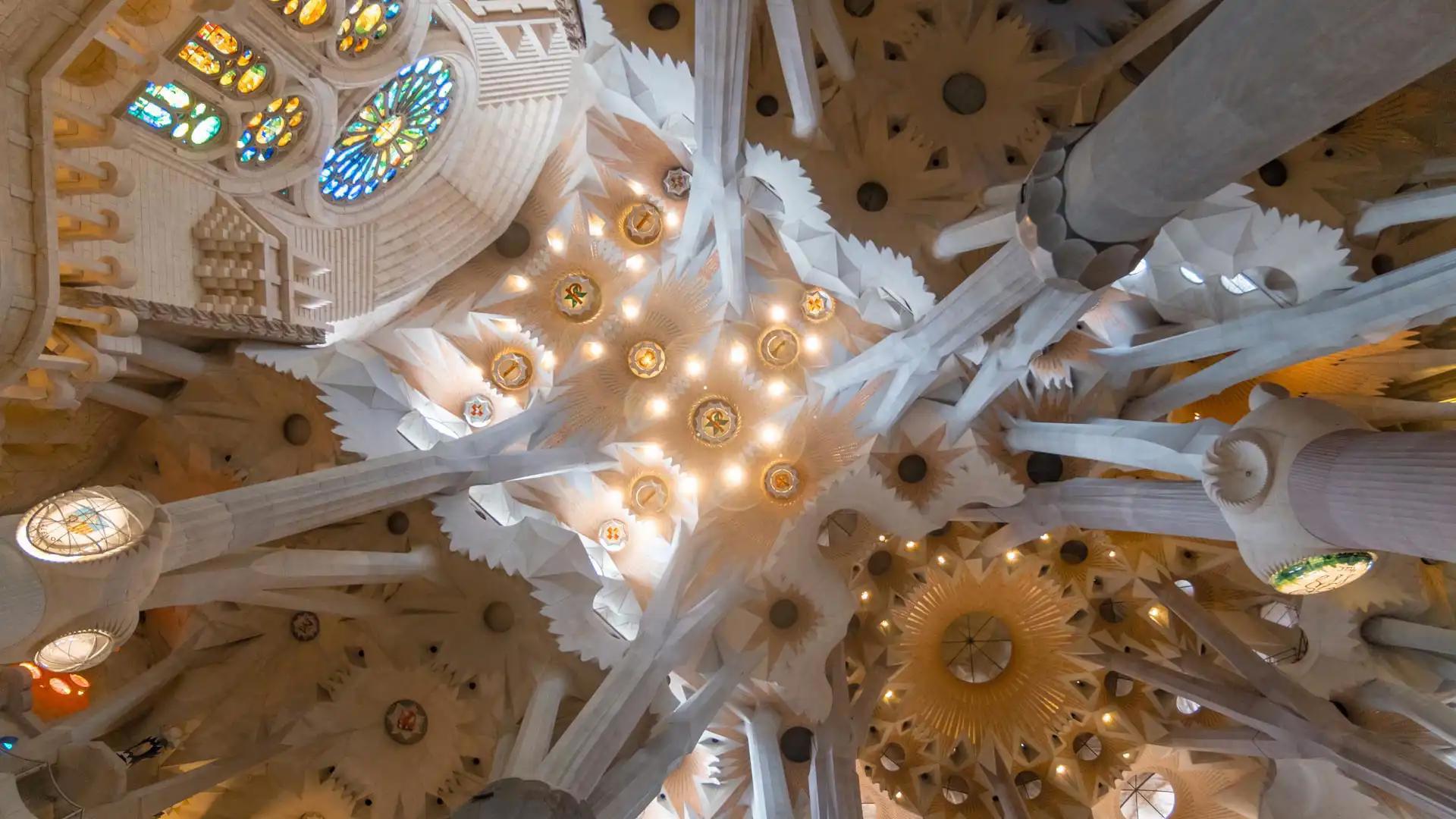
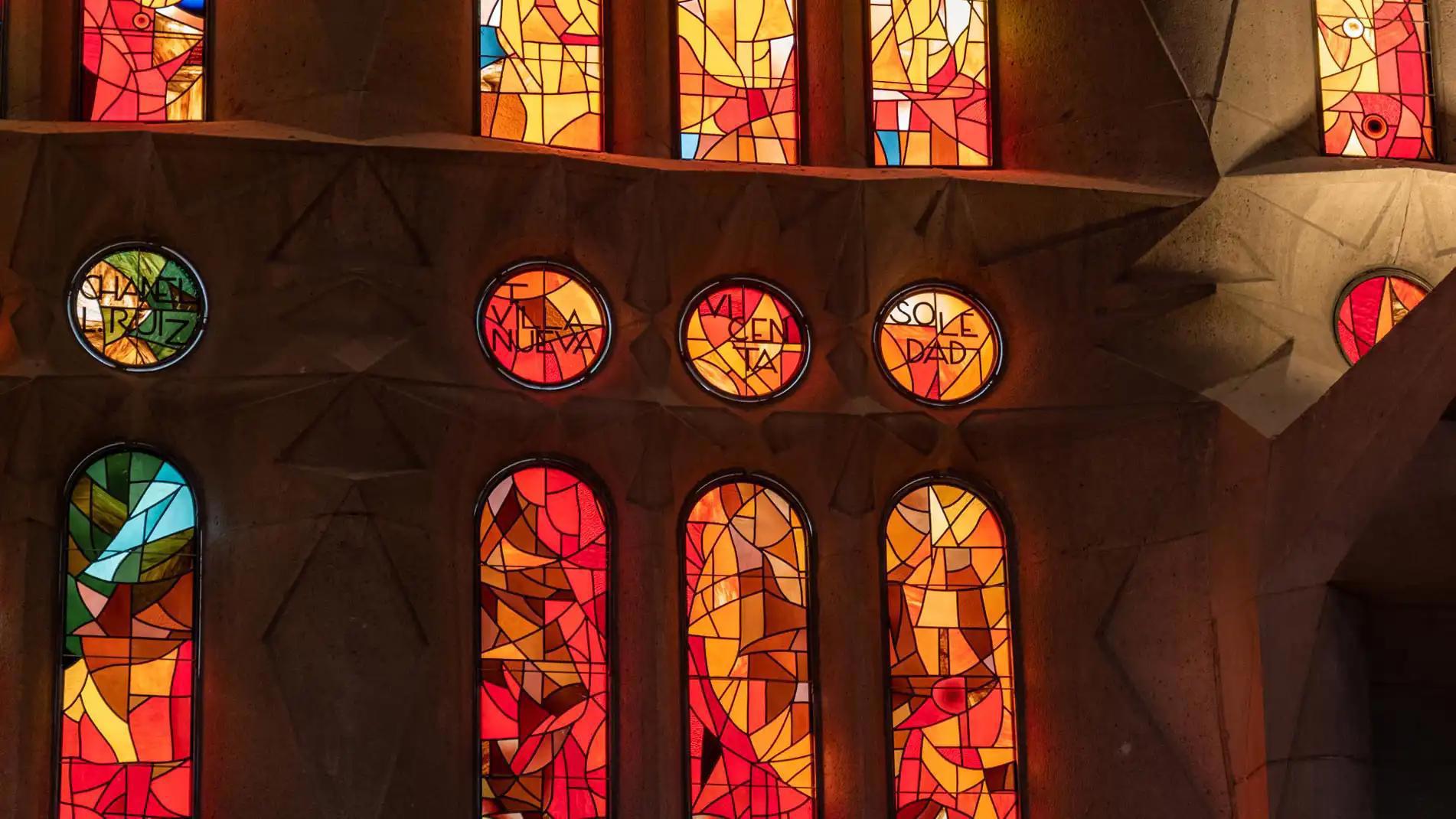
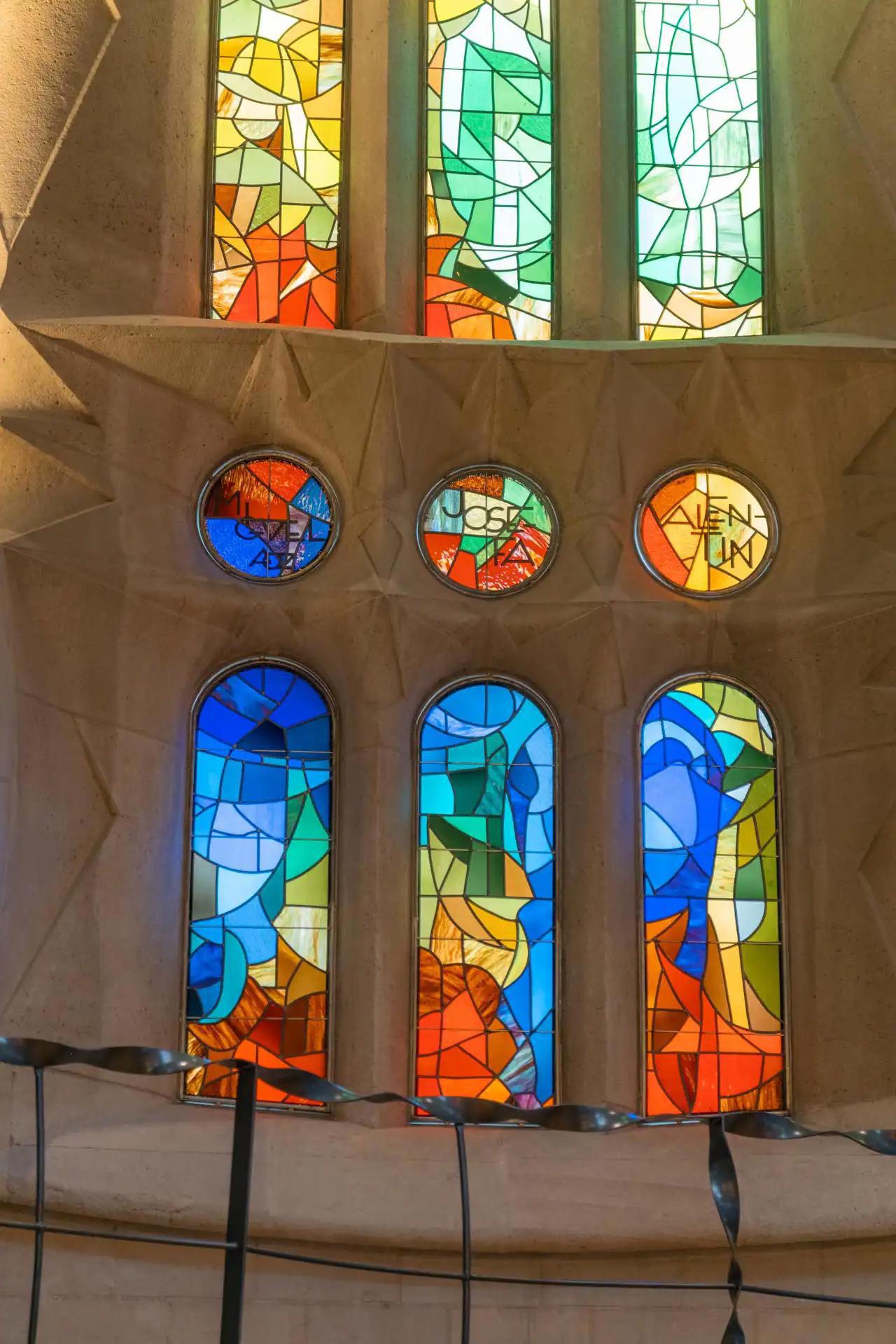
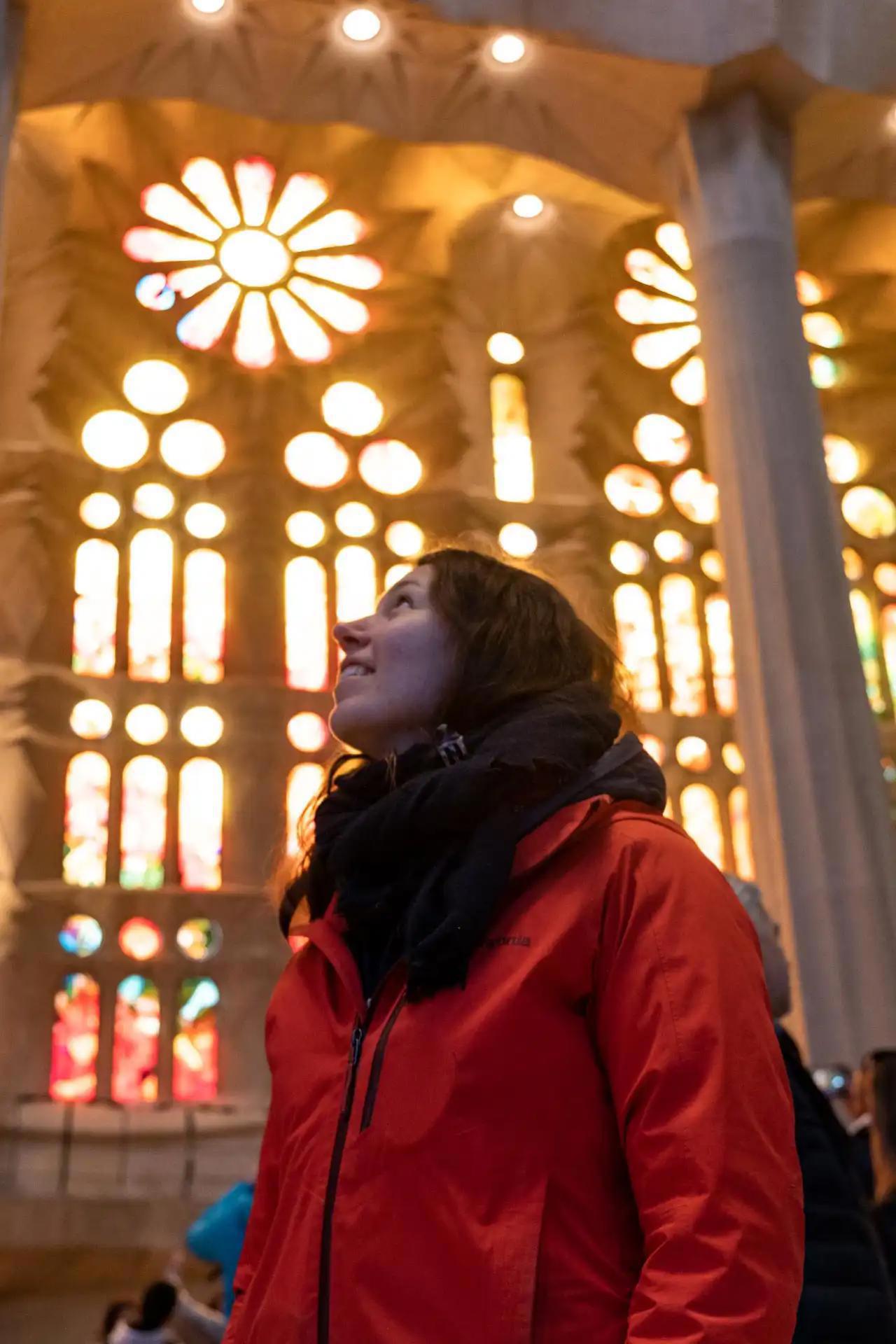
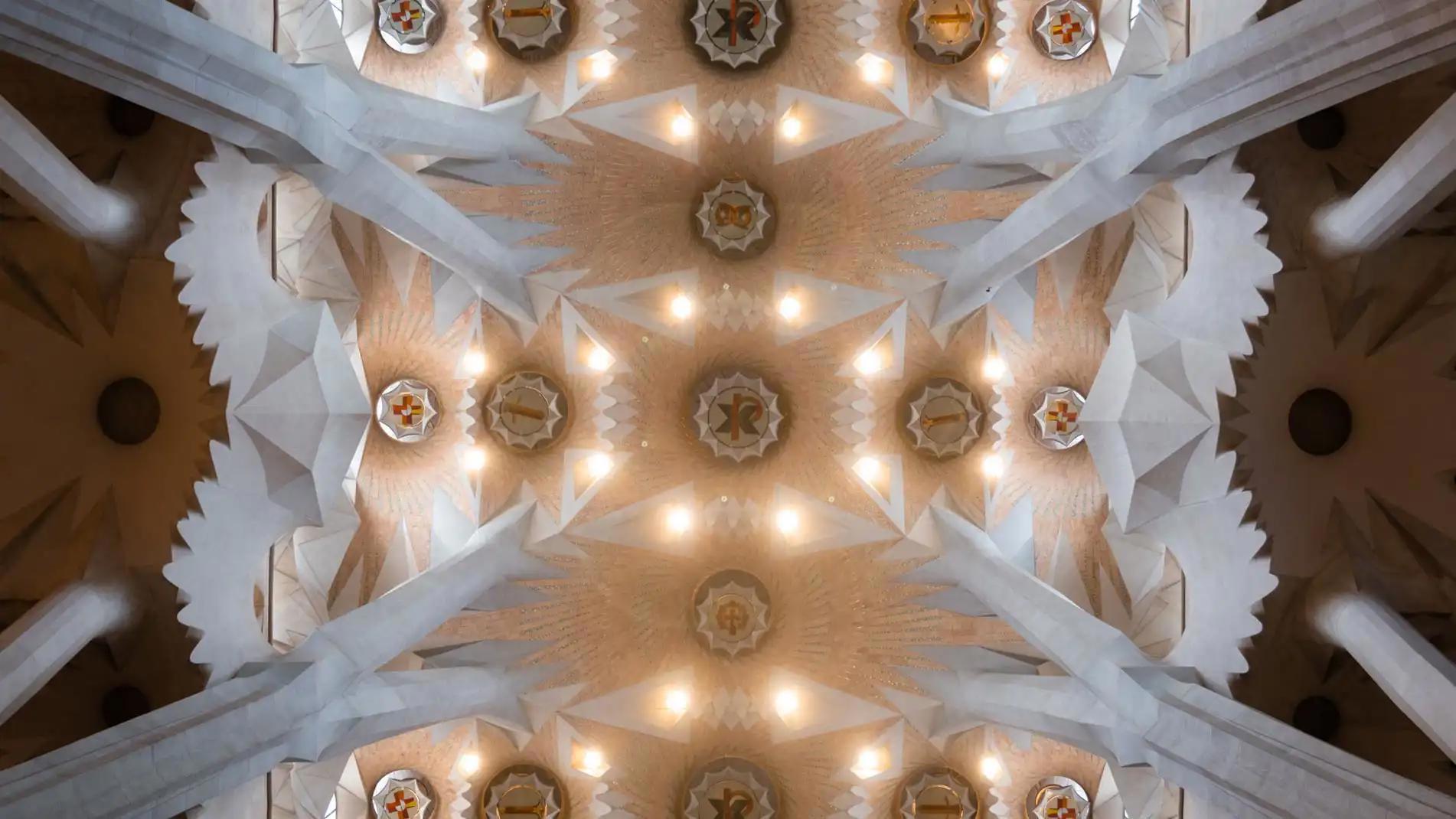
The Passionate Facade
The Passion facade is much harder and more angular than the Nativity facade. It represents the end of Jesus' life, evoking his suffering until his death. Gaudí wanted this facade to be frightening and declared that if he had begun by building the Passion facade instead of the Nativity facade, people would not have appreciated his work and his project.
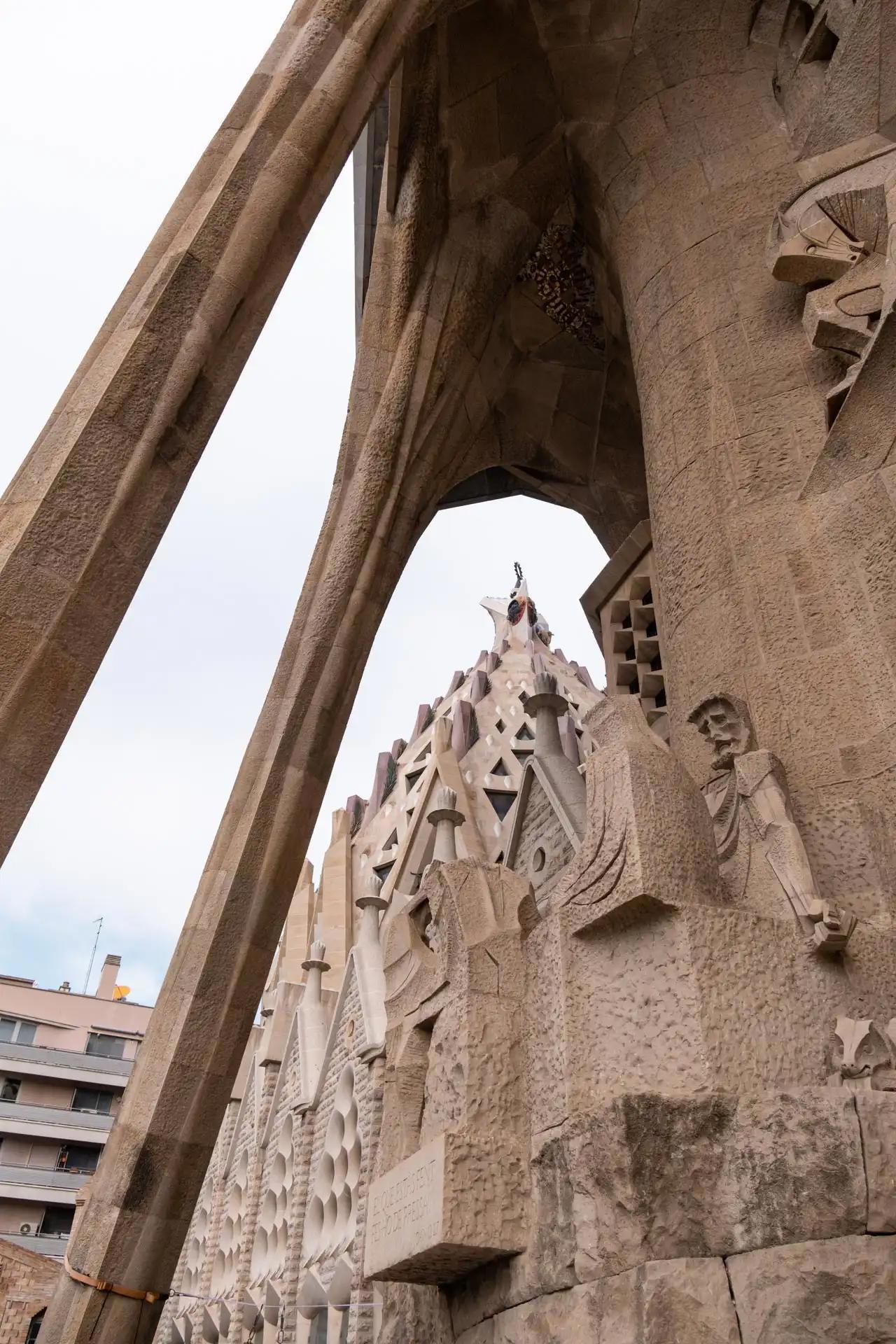
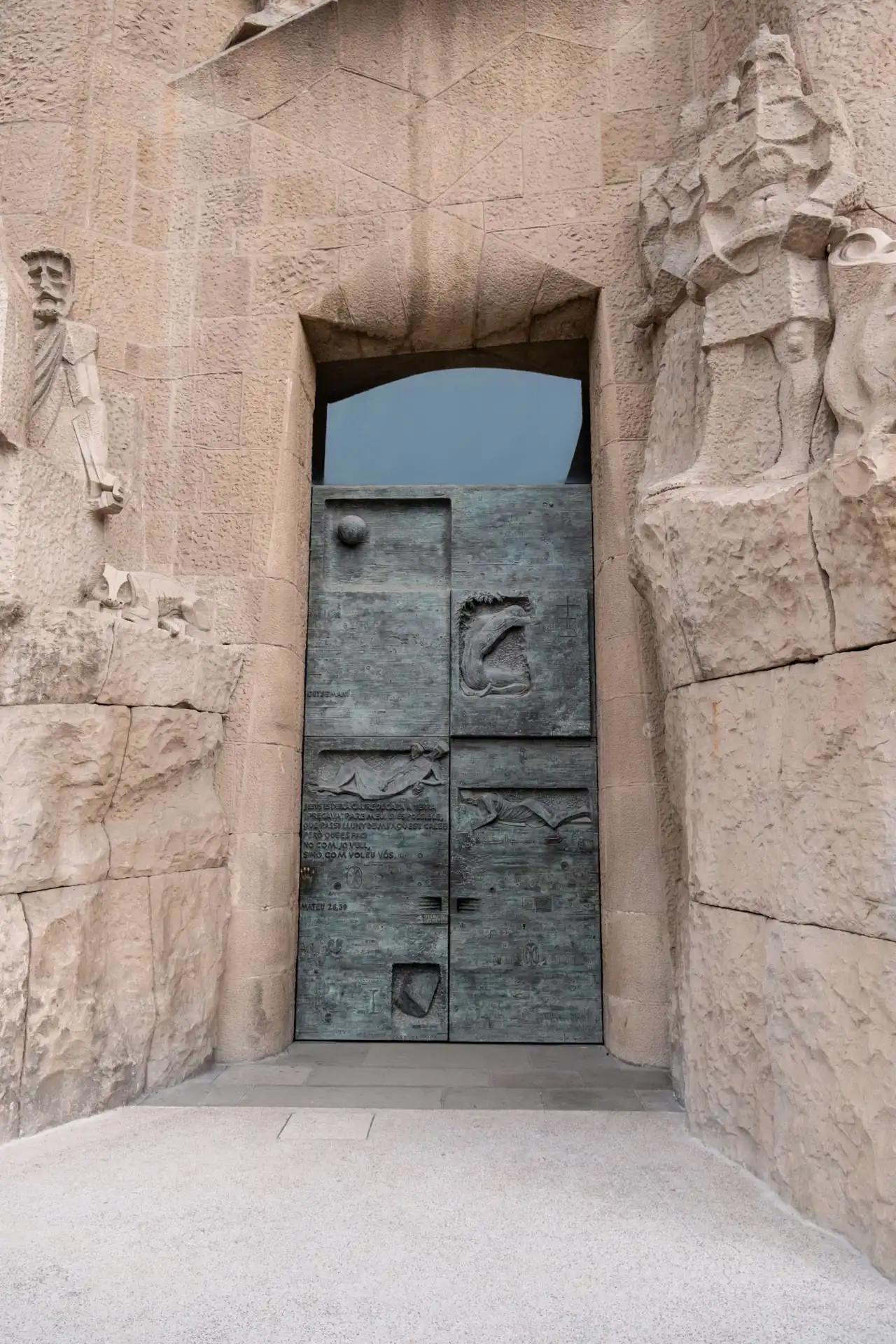
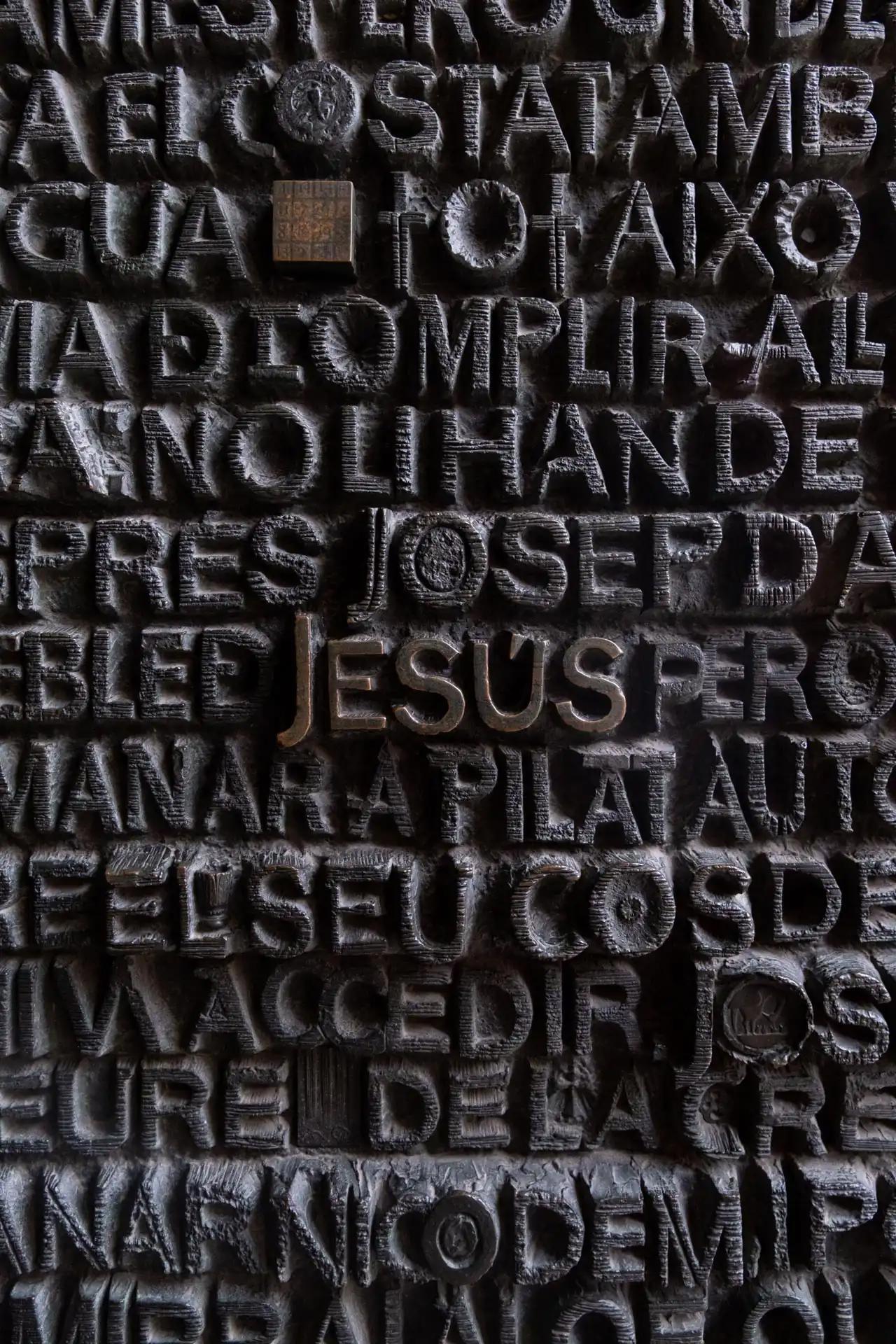
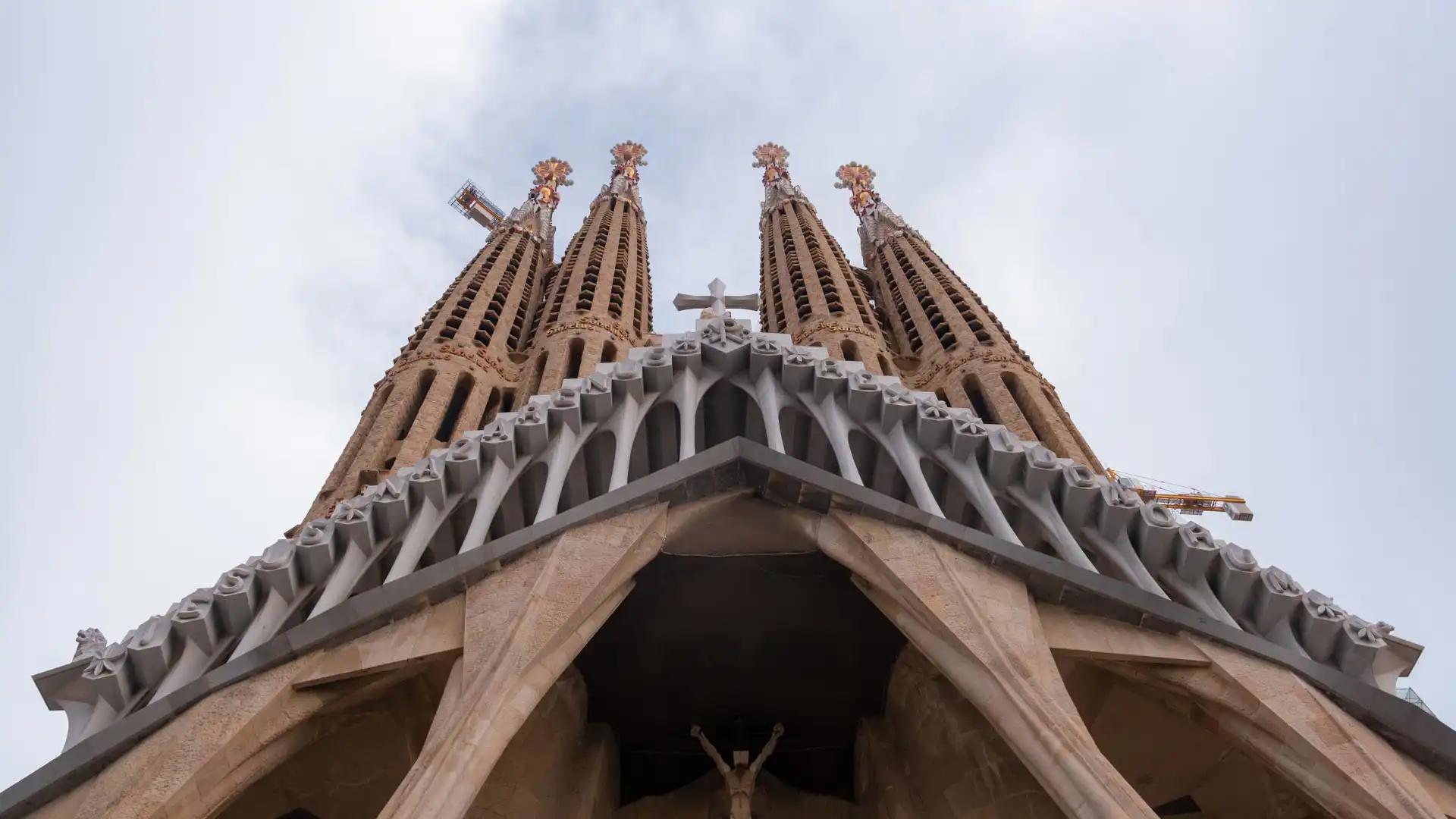
We were truly amazed by Gaudí's work and the beauty of this basilica, The incomparable interior is worth the trip alone and if only one Gaudí creation had to be visited, it would certainly be the Sagrada Família!
Practical information
💰 Prices: from 26€ per person.
📍 Address: C/ de Mallorca, 401 in Barcelona.
🕓 Opening hours: Open all year round. Opening hours vary depending on the season, you can find the official hours here.
ℹ️ Info & booking on the official website of the Sagrada Família to find the cheapest tickets
Booking a day and a time slot is mandatory to visit the Sagrada Família. Don't hesitate to book in advance, especially during peak season and periods of high attendance.
You can also find the complete itinerary of our stay in Barcelona in the link below.

0 comment